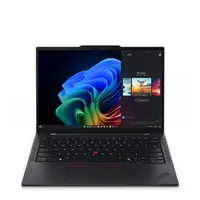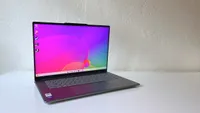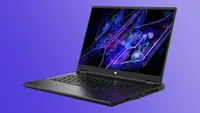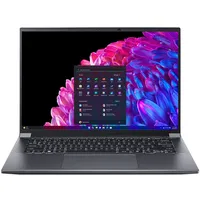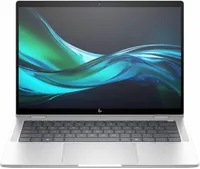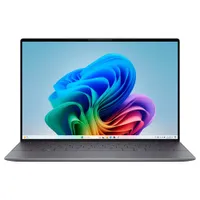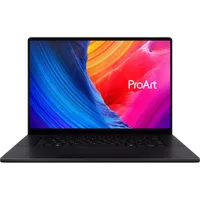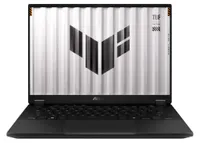Best Windows laptops for January 2025: Tested, reviewed, and ranked
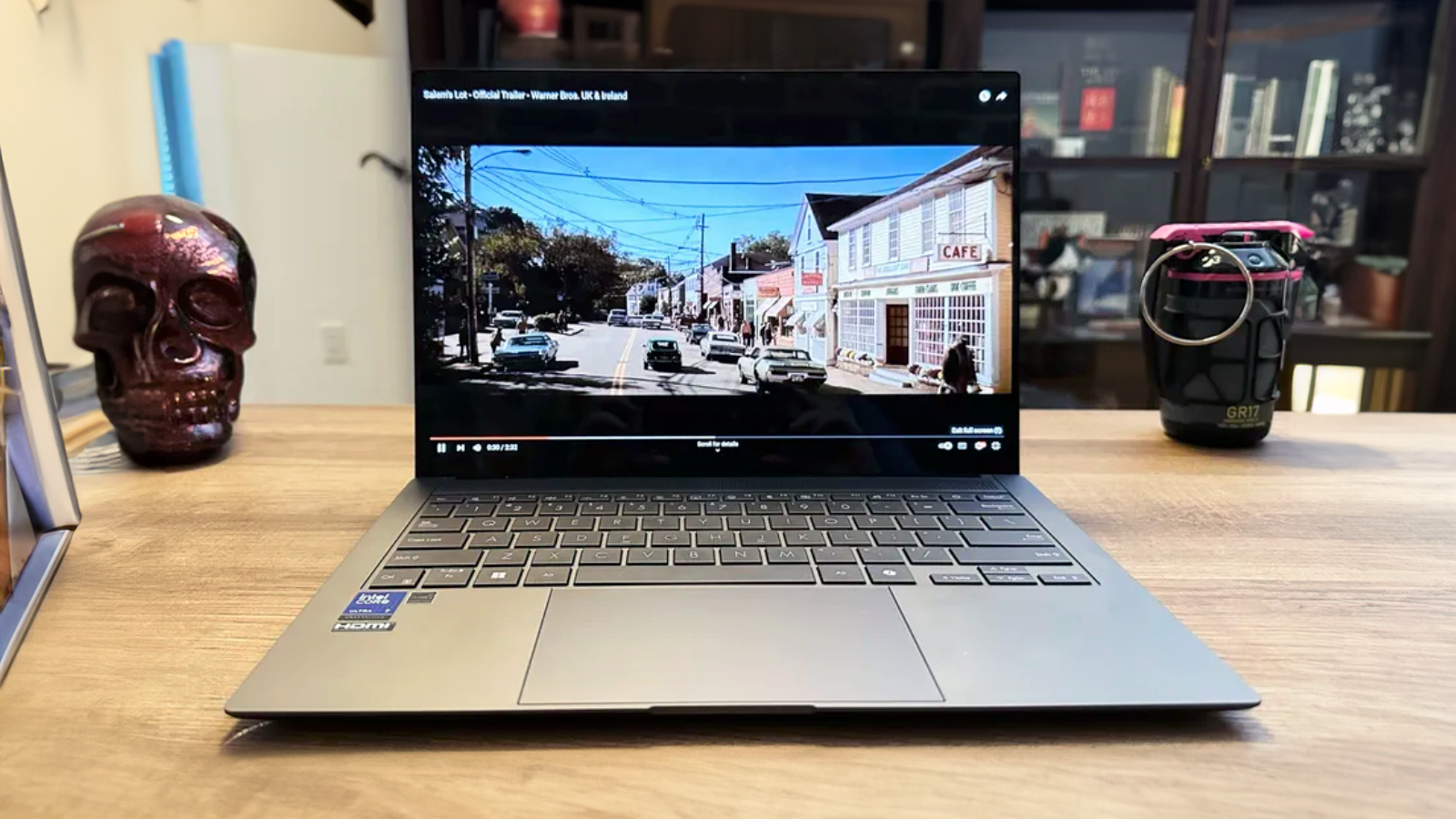
1. Best overall Windows laptop: Asus Zenbook S 14 ↴
2. Best budget Windows laptop: Acer Swift Go 14 ↴
3. Best student laptop: Asus Zenbook 14 OLED ↴
4. Best Windows gaming laptop: Lenovo Legion Pro 7i Gen 9 ↴
5. Best 2-in-1 Windows laptop: HP Spectre x360 14 ↴
6. Best Windows laptop battery life: Dell XPS 13 9345 ↴
7. Best for Windows laptop for work: Asus ExpertBook P5 ↴
8. Recently reviewed ↴
9. How we test laptops ↴
10. Why trust Laptop Mag ↴
Investing in a Windows laptop is much more than finding a suitable MacBook alternative. Today's Windows laptops offer impressive versatility to break free from Apple's sleek but admittedly cookie-cutter mold.
Variety is the spice of life when it comes to Windows machines, and thanks to their access to the latest and greatest processors from Intel, AMD, and Qualcomm, you'll be able to cater your computing to suit anything from peak productivity to powerful polygon-pushing performance in games — especially when paired with Nvidia's newly announced RTX 50-series of discrete GPUs.
Our roundup of Windows laptops breezes past the requirements for Microsoft's Windows 11, giving you no cause for concern over Windows 10's October 14, 2025, end-of-support date.
Better still, the best Windows laptops will also include some of the best AI PCs and powerful machines that boast NPUs (Neural Processing Units) for further performance and efficiency gains.
These laptops deliver the kind of battery life magic that once seemed exclusive to Apple's M-series MacBooks. Still, they also unlock the full potential of the Windows platform through impressive Copilot+ PC exclusive features and tools for smarter multitasking and AI-assisted creation.
If you want multitasking muscle, AI-backed assistance, or beyond console-grade gaming graphics, it's a Windows laptop you're looking for.

Sean Riley has covered a wide variety of tech during his 15 years as a journalist and over four years reviewing laptops at Laptop Mag. As the managing editor, he has a role in every laptop review published on Laptop Mag, so you can trust his guidance in finding the best laptop for you.

Rael Hornby, a lifelong Windows user, brings decades of tech enthusiasm and Windows familiarity to the table with a broad experience of Microsoft's platform, involving technical support, programming, and web design, beyond his role in covering key Microsoft and Windows-related news for Laptop Mag.
Best overall Windows laptop: Asus Zenbook S 14 (UX5406)
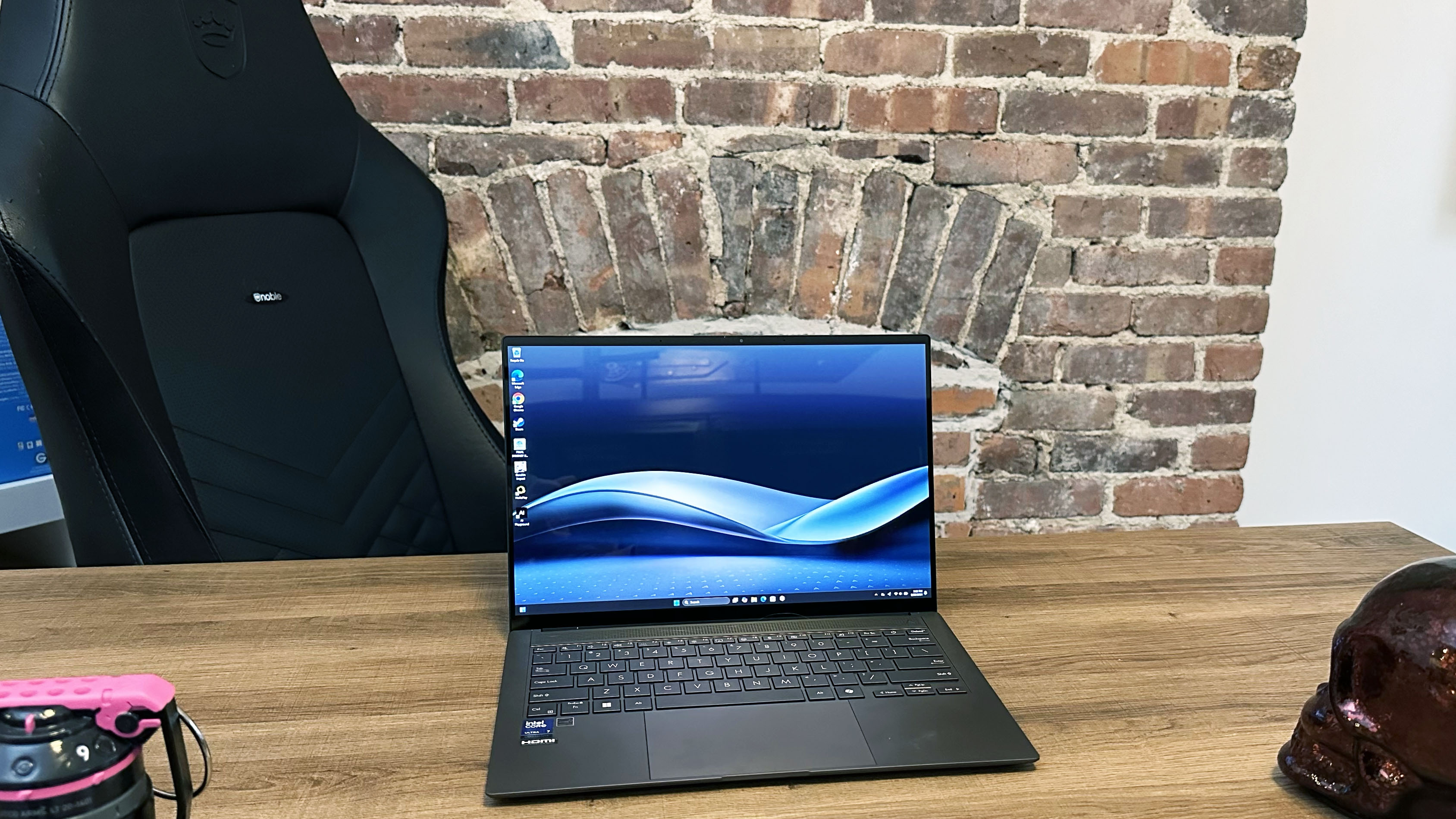
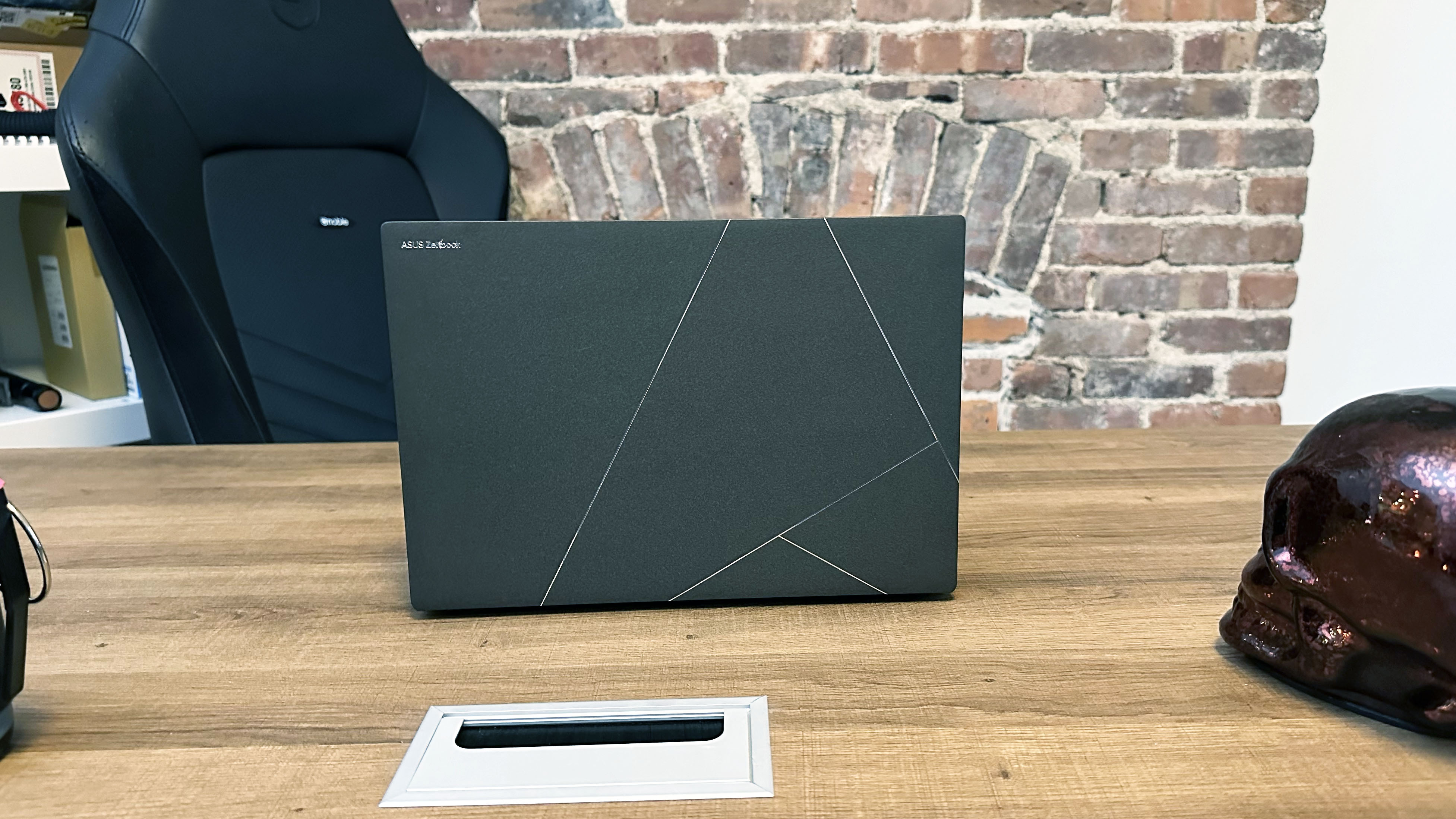
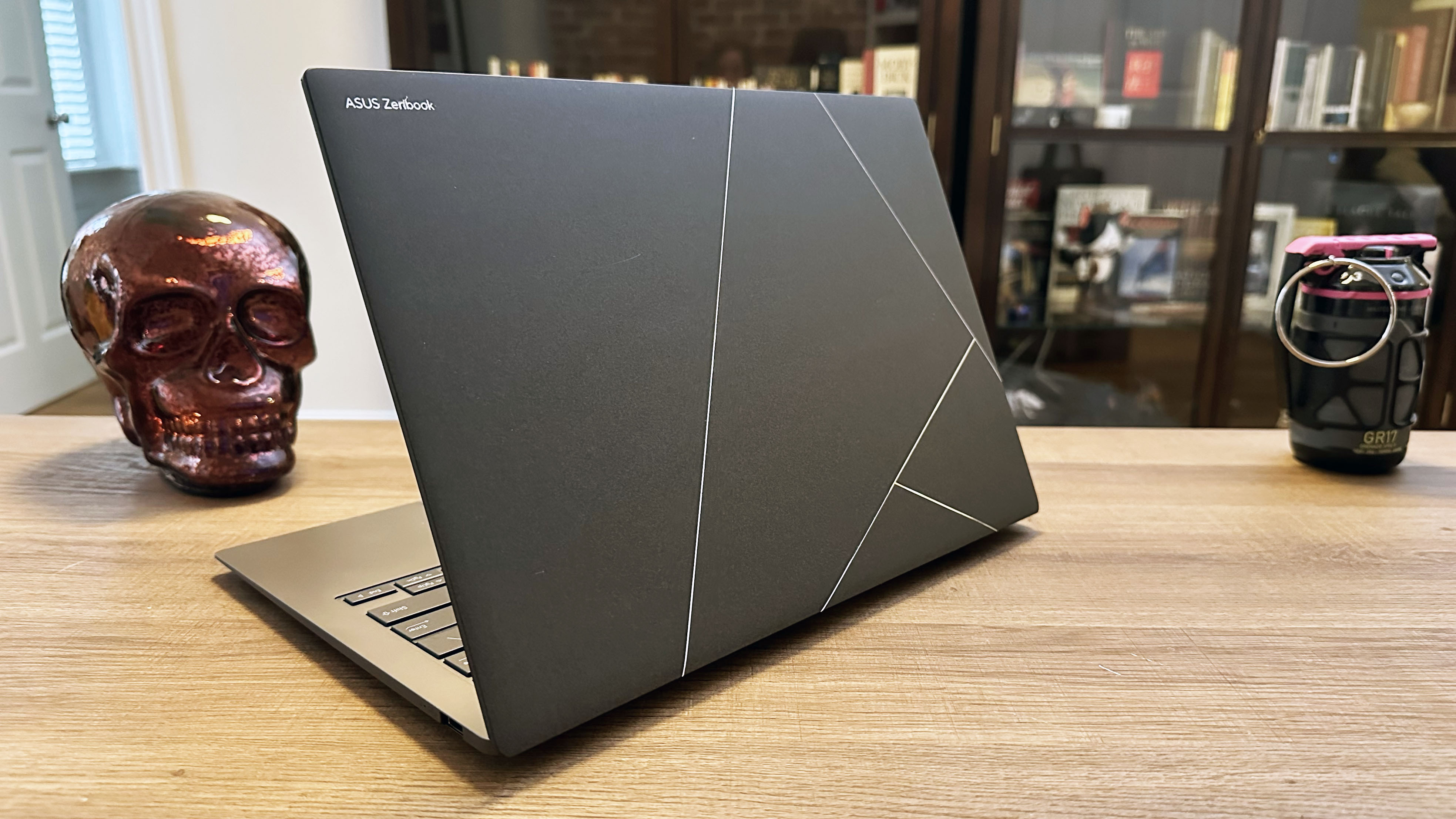
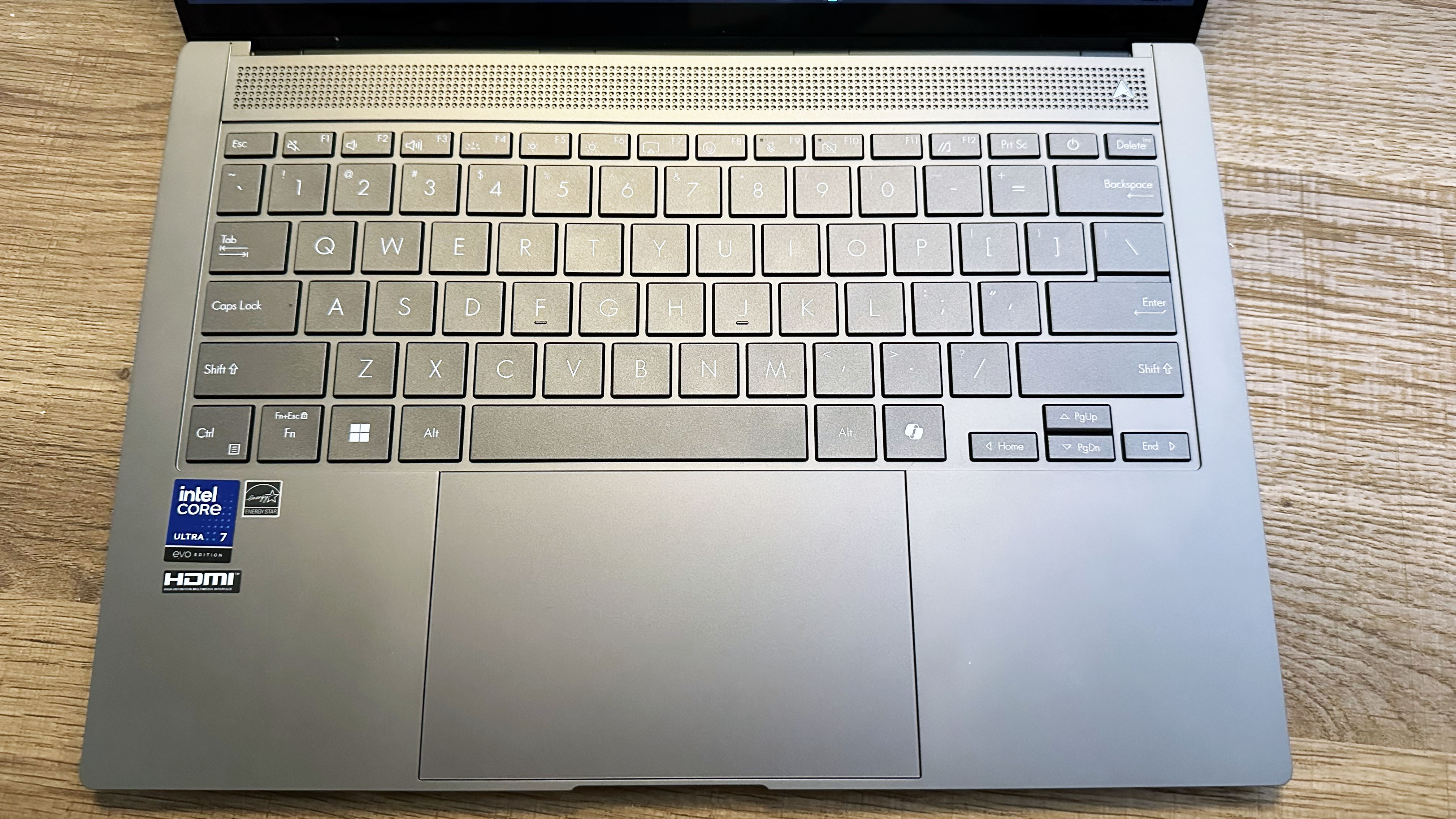
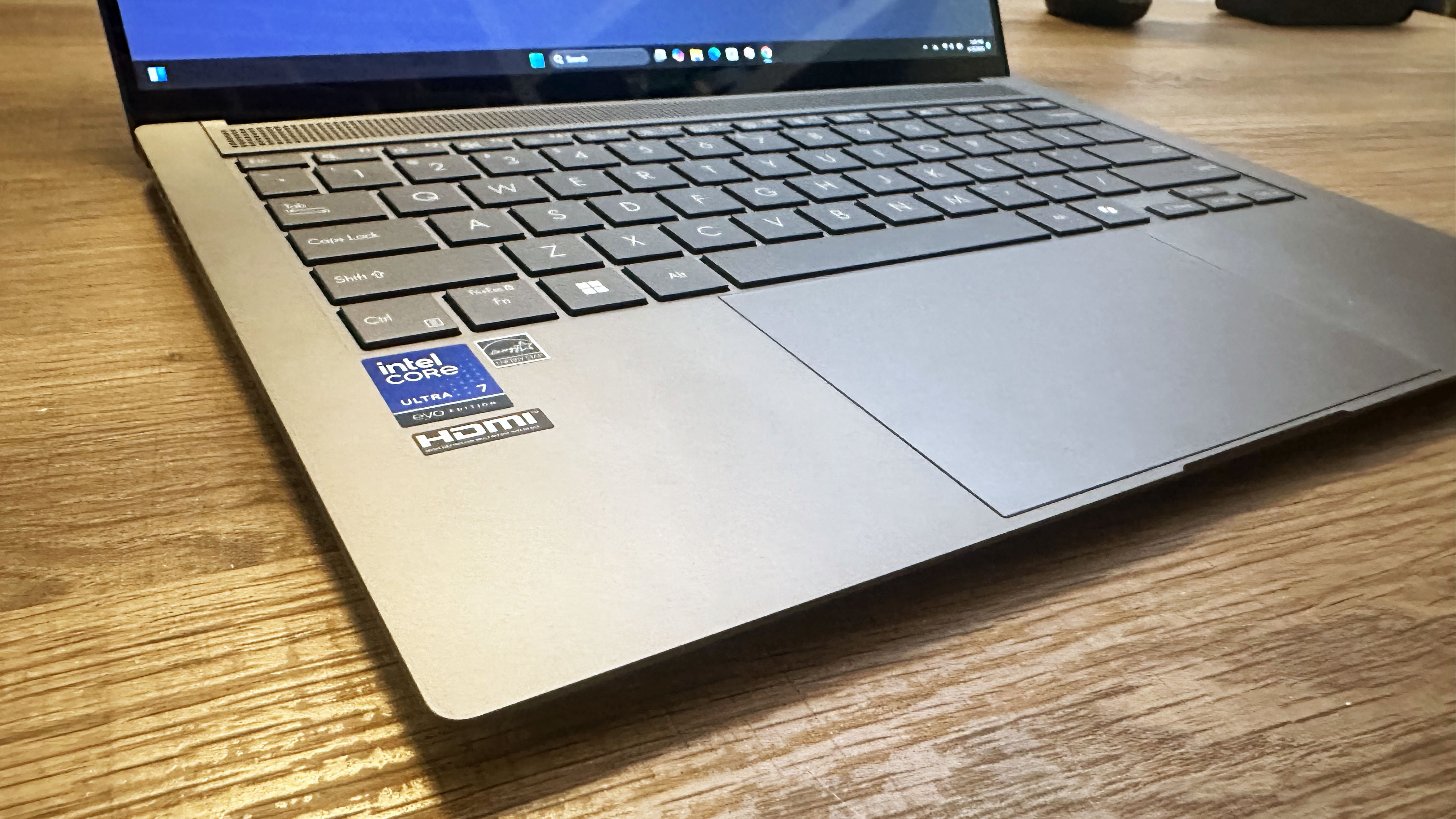
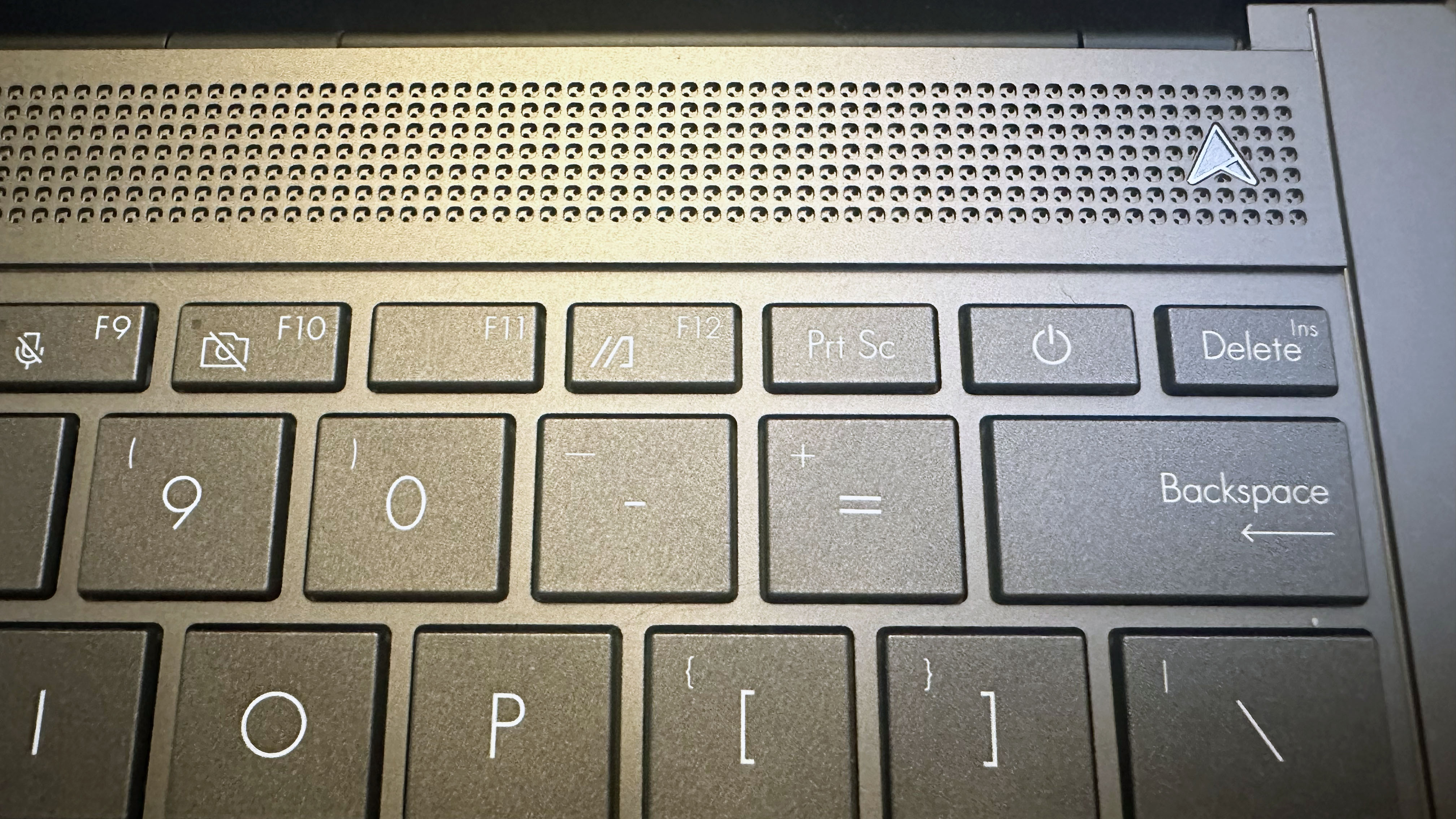
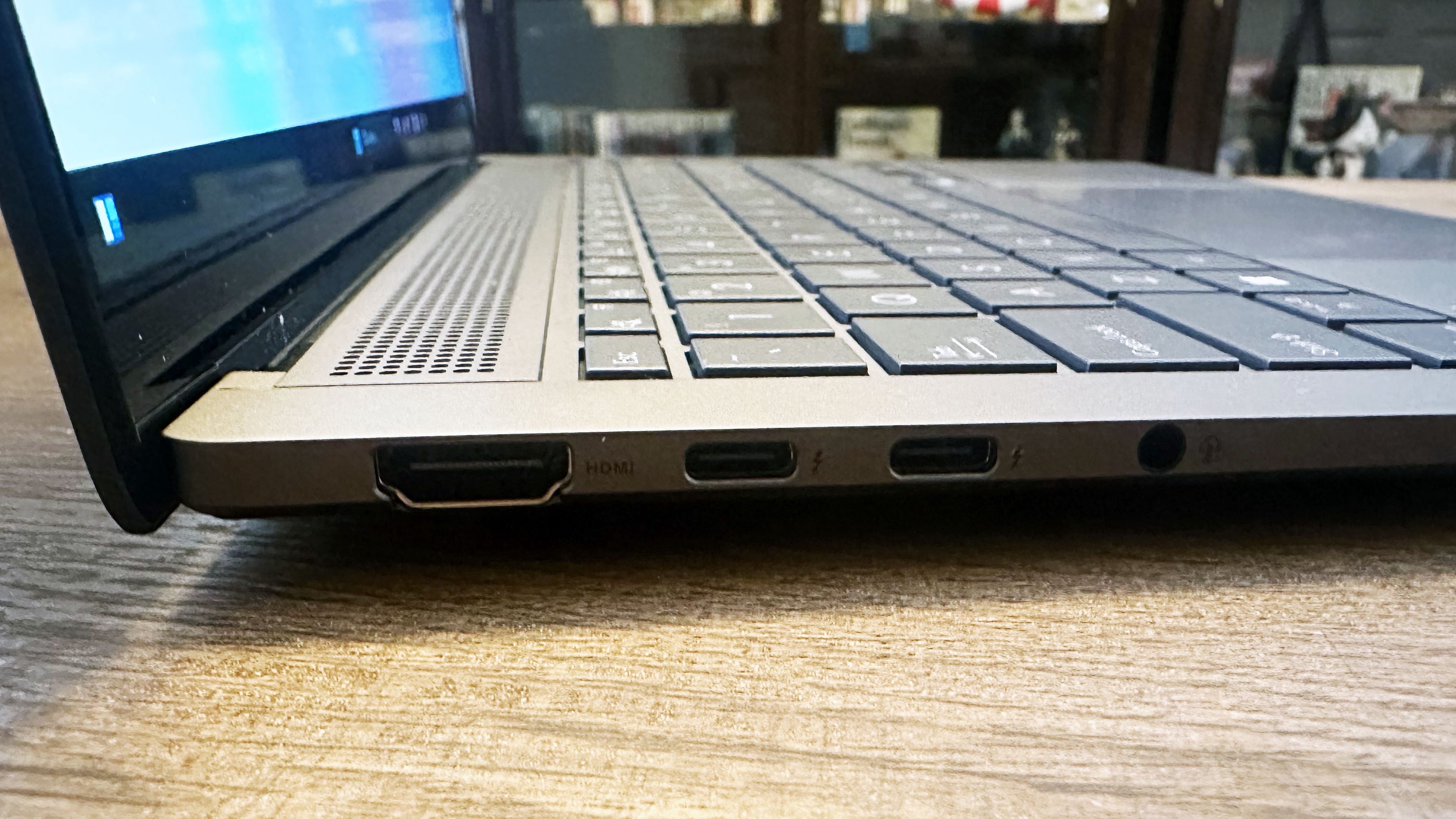
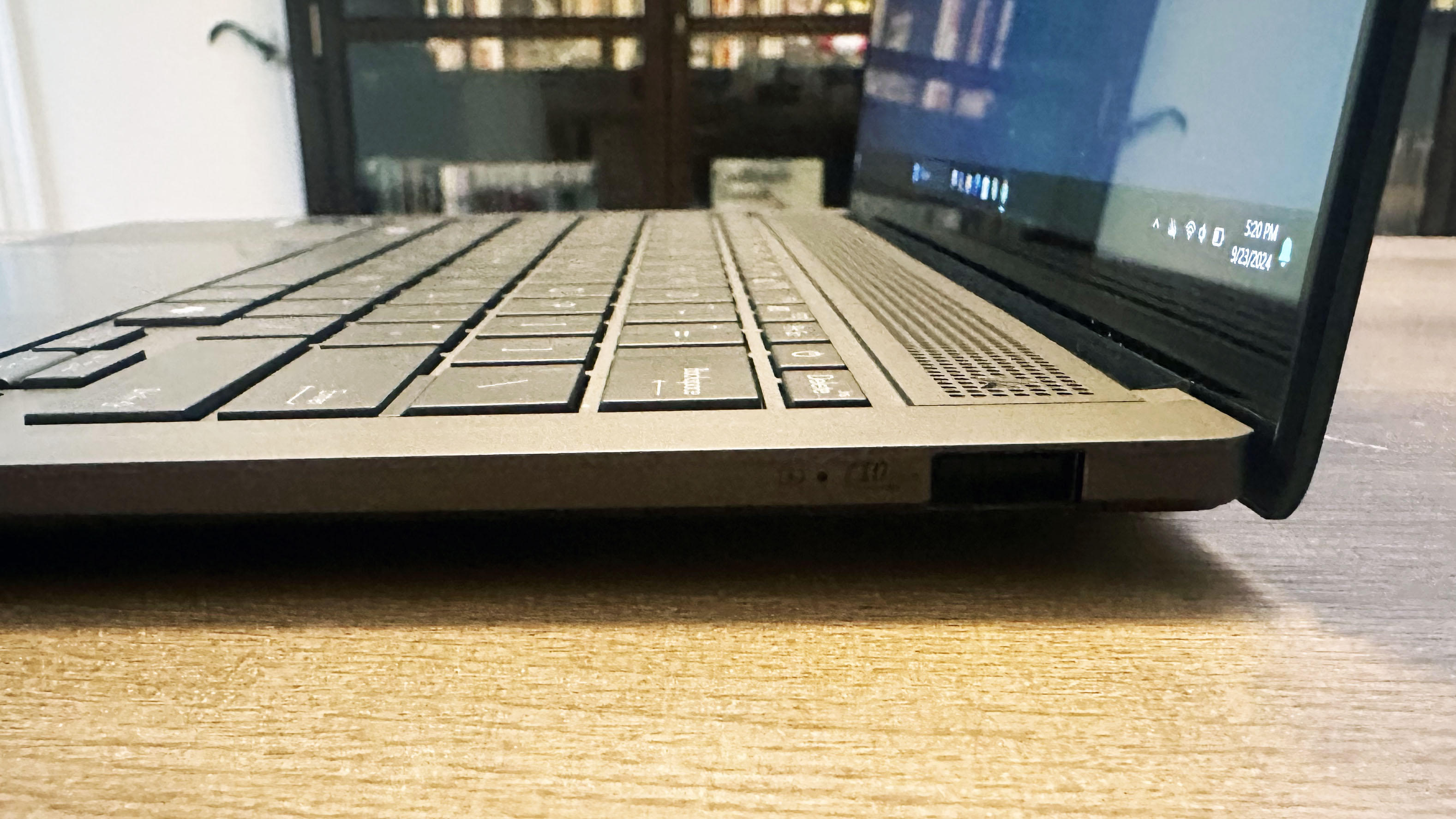
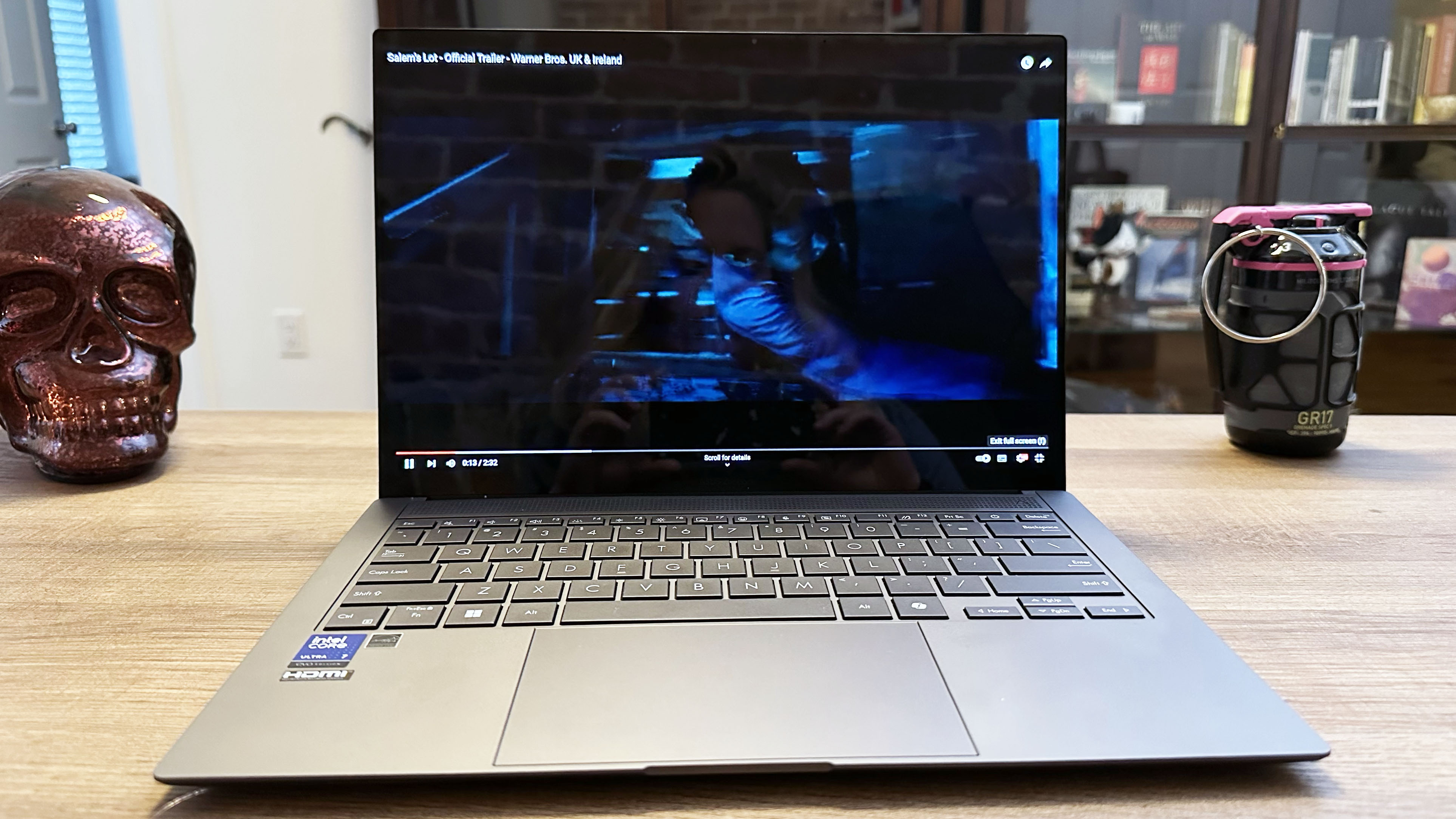
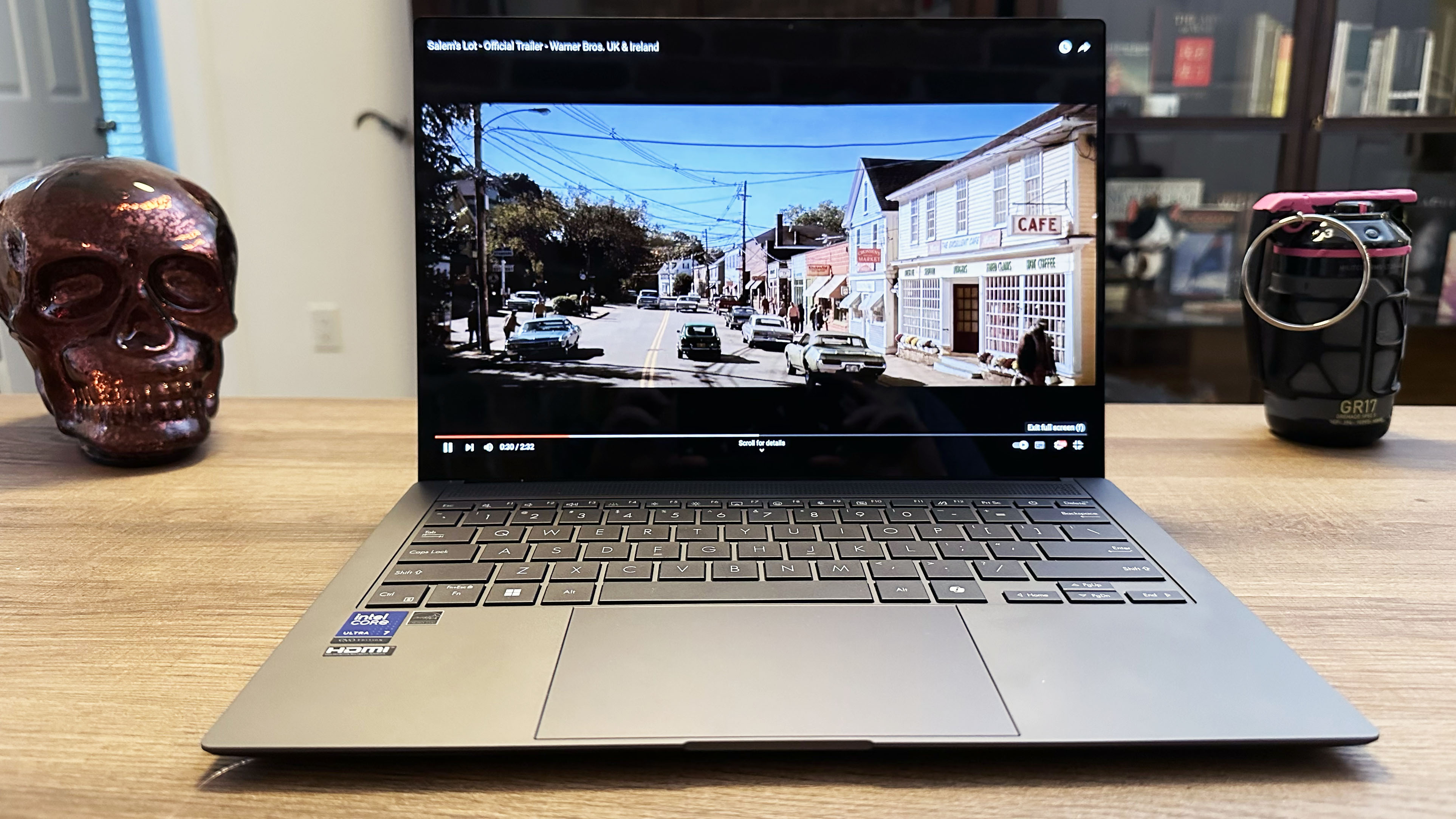
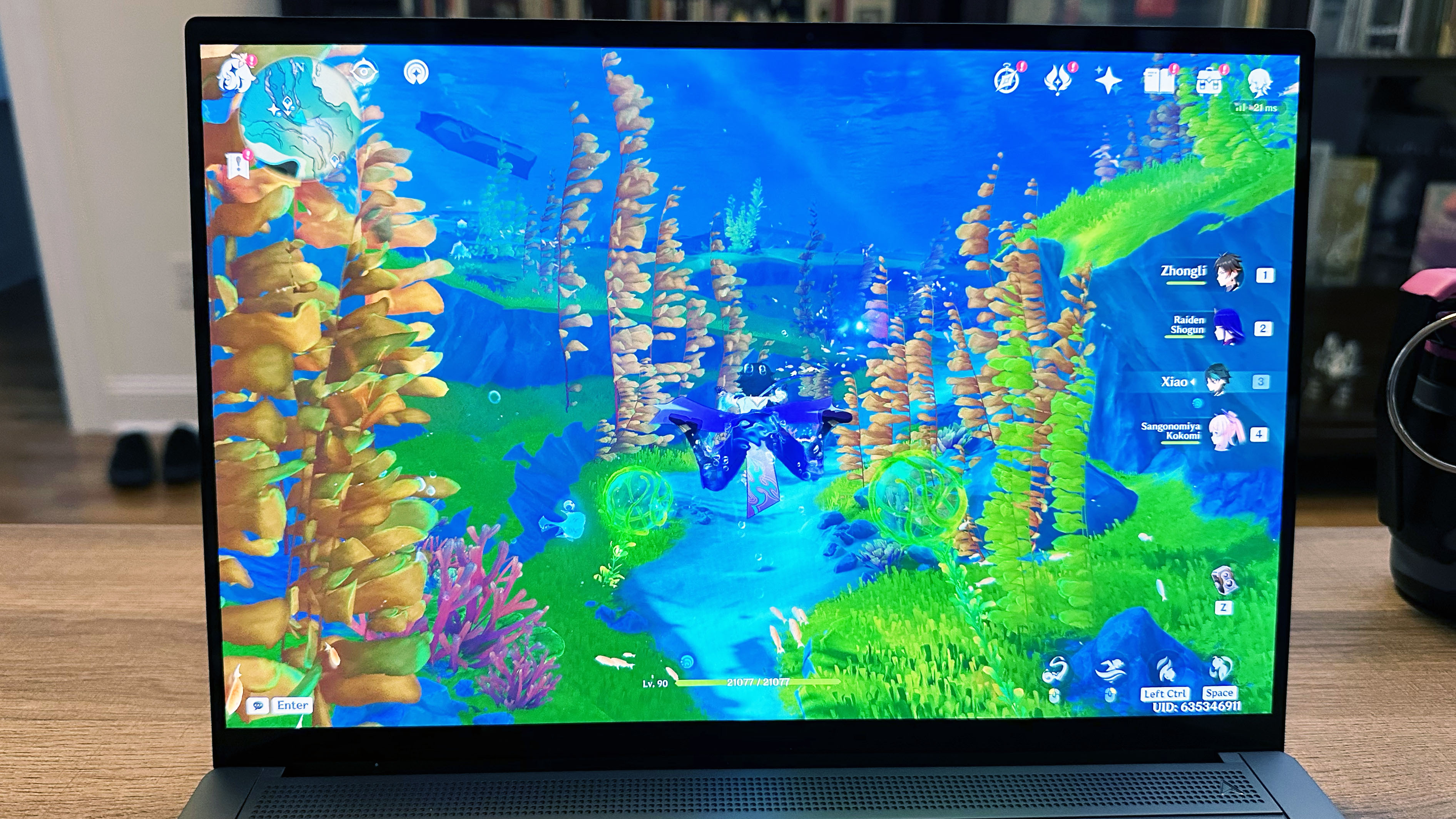
Specifications
Reasons to buy
Reasons to avoid
The Asus Zenbook S 14 (UX5406) is currently our pick for the best AI PC laptop, but it deserves more praise than that. It features the new Intel Core Ultra 200V series processor and even at its full price of $1,499, you are getting a compelling balance of performance, almost 14-hours of battery life, a stunning 14-inch OLED display, plus 32GB of RAM and 1TB of storage. Run whatever AI, productivity, or creative software you want and the Zenbook S14 should remain a multi-tasking machine on the go.
In our review, staff writer Madeline Ricchiuto writes, "From its stunning design to its vivid OLED display panel, there’s plenty to appreciate about the Asus Zenbook S 14."
In our Laptop Mag battery test the Asus Zenbook S 14 lasted 13 hours and 51 minutes, which should let you leave the charger at home even for your worst day of work, school, or play. Speaking of on the go advantages, the Zenbook's scratch-resistant Ceraluminum ultralight chassis should keep it looking brand new even if you tote it everywhere with you.
If you care about your laptops visuals, the Zenbook S 14's 3K (2,880 x 1,800) OLED display will leave you very happy. It is vividly colorful, capturing 82% of the DCI-P3 color gamut, which is an excellent result for the typically low-scoring OLED, and at 342 nits of brightness, it will hold up well in brightly lit environments.
Unlike many ultraportables, the Zenbook S 14 doesn't skimp on the port selection with a pair of Thunderbolt 4 USB-C ports, a USB 3.2 Gen 2 Type-A port, an HDMI 2.1 port, and a 3.5mm headphone/mic jack. That should cover most people's needs and it throws down the gauntlet for ultrabooks that went USB-C/Thunderbolt-only.
If you have greater performance needs, then something like the MacBook Air 13 M3 may be the answer at a similar size and weight, or if you are looking for a business-focused ultraportable, the Asus ExpertBook P5 is a strong choice. However, for a solid blend of performance, battery life, and price in a compact package the Zenbook S 14 is a standout choice.
See our full Asus Zenbook S 14 (UX5406) review.
More like this: Best ultrabooks in 2024
Click to view chart data in table format
| Header Cell - Column 0 | Asus Zenbook S 14 (UX5406) | Asus Zenbook S 16 (AMD Ryzen AI 9) | Dell XPS 9345 (Snapdragon X Elite) |
|---|---|---|---|
| Geekbench 6.2 (Higher is better) | 11157 | 13282 | 14635 |
| Handbrake time (Lower is better, (MM.SS)) | 8.3 | 5.08 | 4.41 |
| Battery life (HH.MM) | 13.51 | 11.35 | 19.01 |
| DCI-P3 Color Gamut (Higher is better) | 82% | 79.70% | 66.90% |
| Display Brightness (Nits) | 342 | 357 | 455 |
Best affordable Windows laptop: Acer Swift Go 14
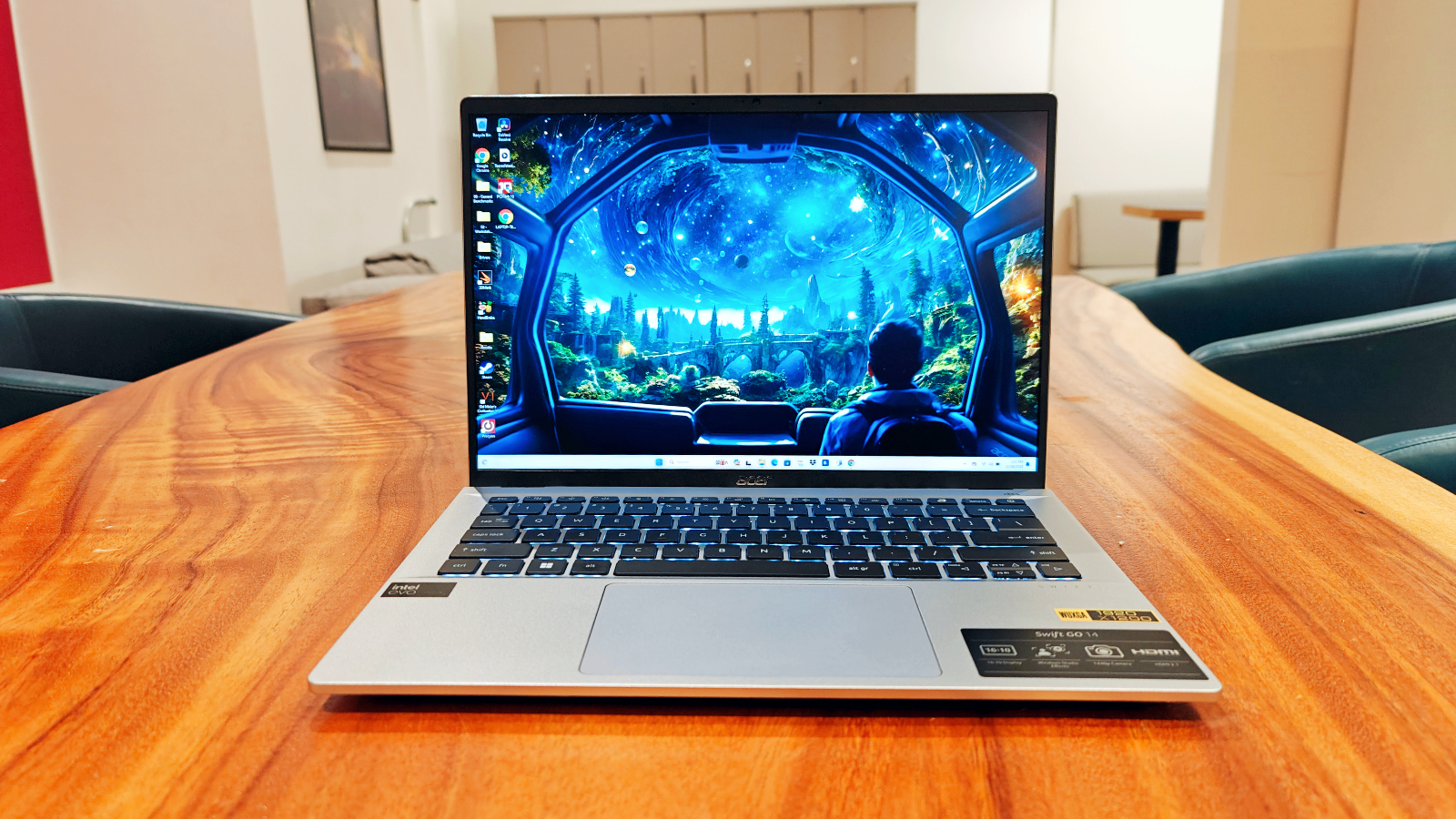
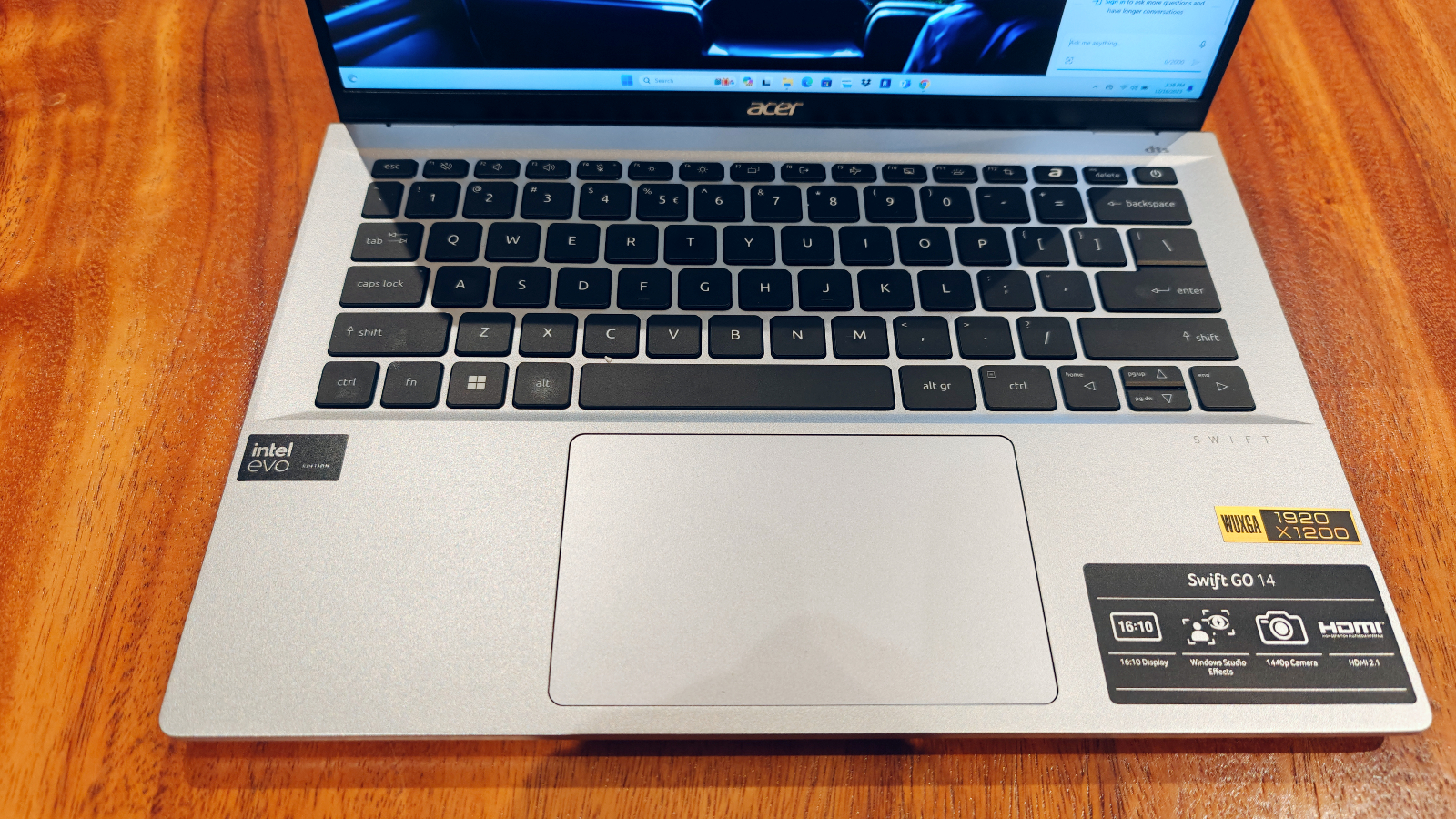
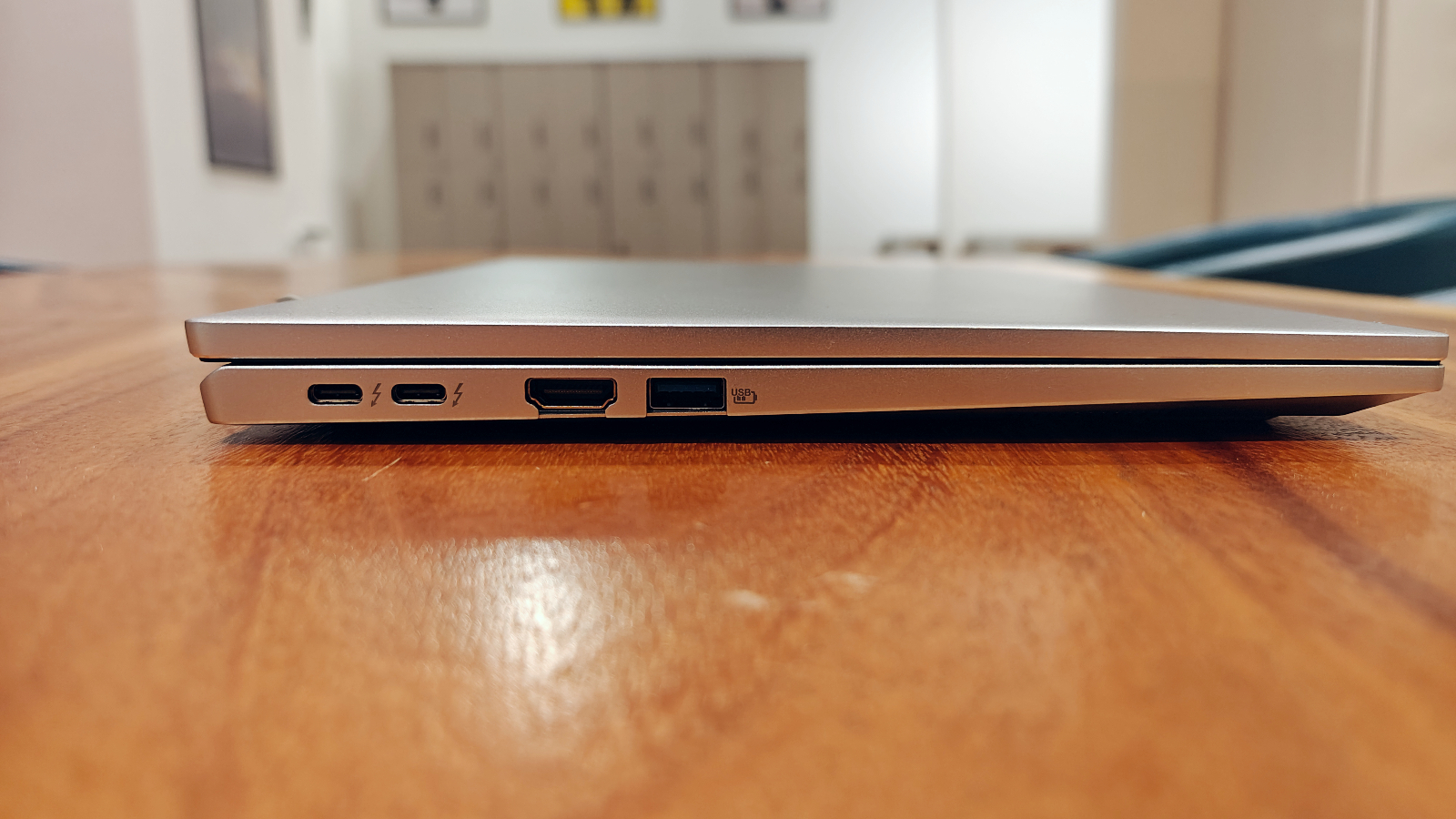
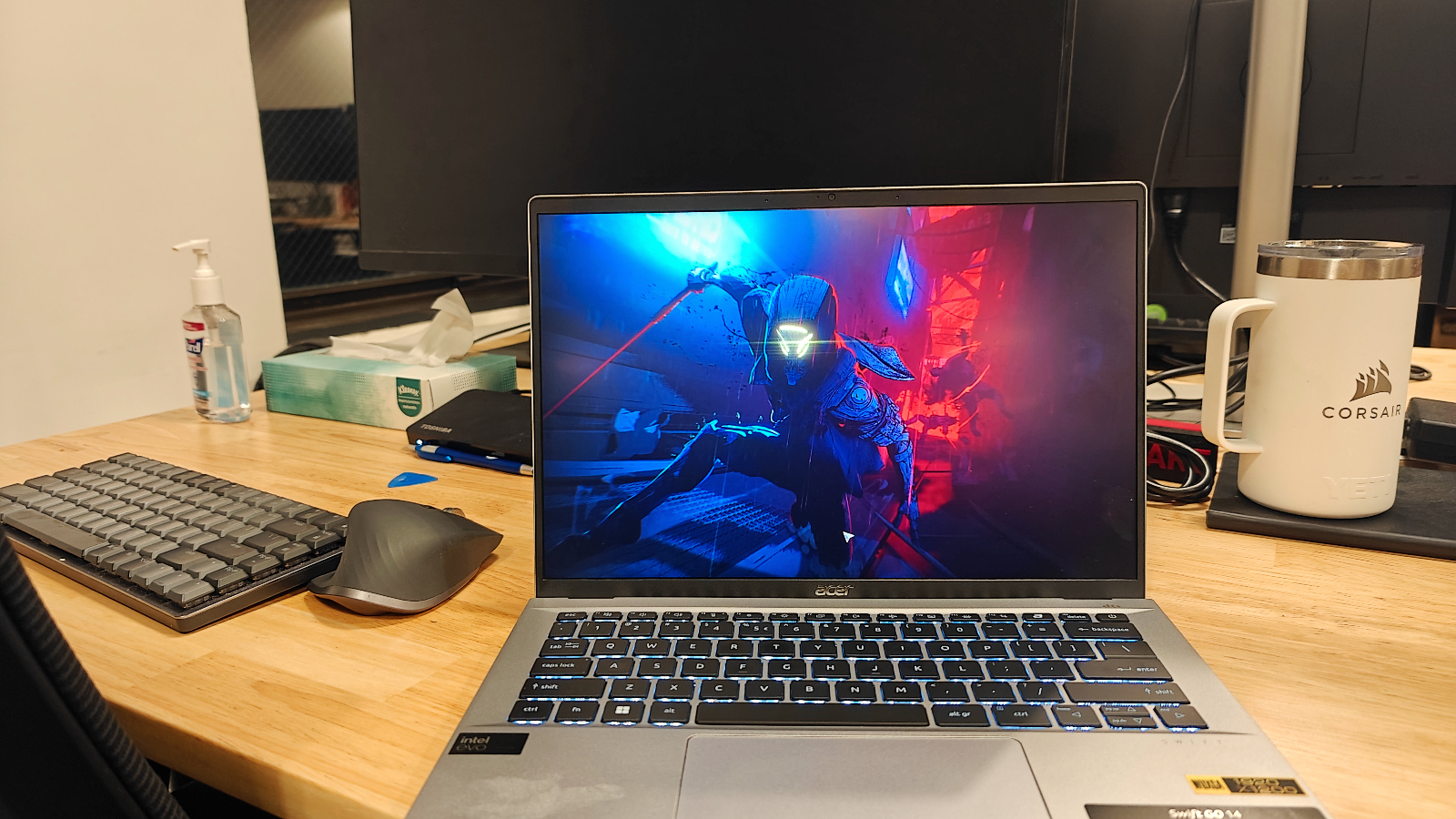
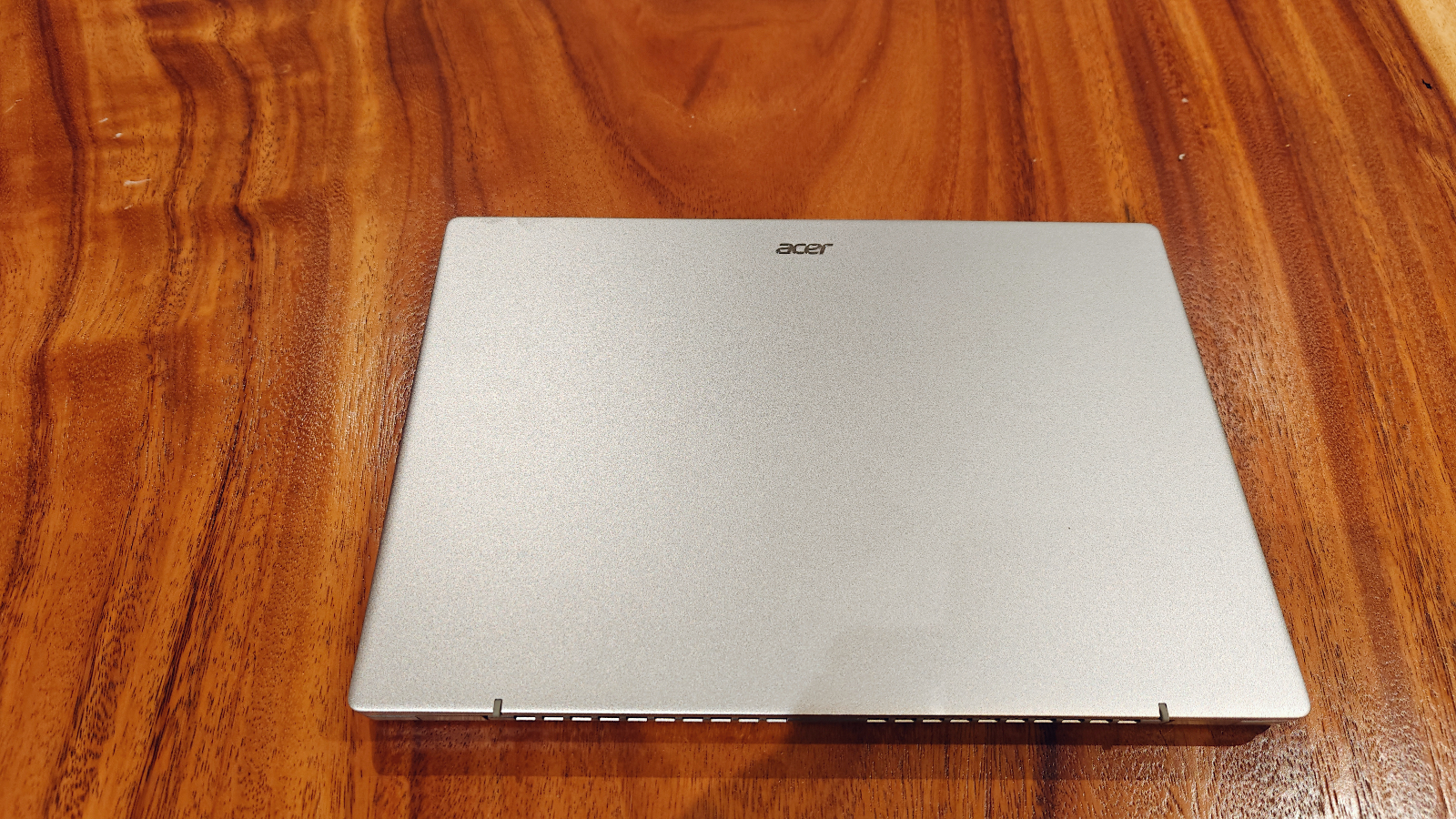
Specifications
Reasons to buy
Reasons to avoid
Acer's Swift Go 14 is the obvious choice for the best budget laptop right now. At a mere $749, it isn't the cheapest laptop, but none can match it in terms of value for money.
While Laptop Mag reviewed the slightly upgraded $999 configuration, the main trade-off is moving from an Intel Core Ultra 7 155H to a Core Ultra 5 125H. If you stick to productivity work, browsing, and other general computing, you won't likely notice.
The Go 14 weighs in at just 2.9 pounds. The metallic all-aluminum chassis gives off a faint sparkle that looks and feels far more premium than its price. Popping it open, the contrasting black chiclet-style backlit keyboard looks and feels excellent. Acer also gives you ports aplenty on this portable laptop with two Thunderbolt 4 ports, two USB Type-A ports, an HDMI port, a microSD card slot, a 3.5mm audio jack, and a Kensington lock slot.
The display's color gamut is just below the mainstream average at 79.1 percent of the DCI-P3 (85.2 percent is average), but it beats the category average in brightness at 374 nits (354 is average). If you value a sharper image, you could also opt for the 2.8K display configuration.
Performance with our review model was everything we've come to expect from the latest Intel Core Ultra. Our Geekbench 6.2 overall performance test scored 12,434, overtaking more expensive options like the MacBook Air M3 (12,087). It also scorched the competition for our Handbrake video encoding test at 5 minutes and 18 seconds, almost four full minutes under the category average (9:07), again besting the MacBook Air M3 (7:54).
So what are the drawbacks? The battery life isn't bad, at 9 hours and 50 minutes in our testing, but it is well below top options like the MacBook Air M3 (15:21) or the Asus Zenbook 14 OLED (15:52). If you frequently travel or otherwise have difficulty plugging in, this could affect your decision. The built-in speakers are also less than stellar, so plan on some wireless headphones or earbuds.
However, these are minor concerns for most users, so if you are looking for the best laptop value, consider the Acer Swift Go 14.
See our full Acer Swift 14 Go (Intel Core Ultra) review
More like this: Best budget laptops 2025
Click to view chart data in table format
| Header Cell - Column 0 | Acer Swift Go 14 (2023) | MacBook Air 13 M2 | Acer Swift Go 14 OLED (2023) |
|---|---|---|---|
| Geekbench 6.2 (Higher is better) | 12434 | 9467 | 11950 |
| Handbrake time (Lower is better, (MM.SS)) | 5.18 | 7.52 | 5.35 |
| Battery life (HH.MM) | 9.5 | 14.06 | 7.26 |
| DCI-P3 Color Gamut (Higher is better) | 79.10% | 75.90% | 175.70% |
| Display Brightness (Nits) | 374 | 489 | 395 |
Best Windows laptop for students: Asus Zenbook 14 OLED
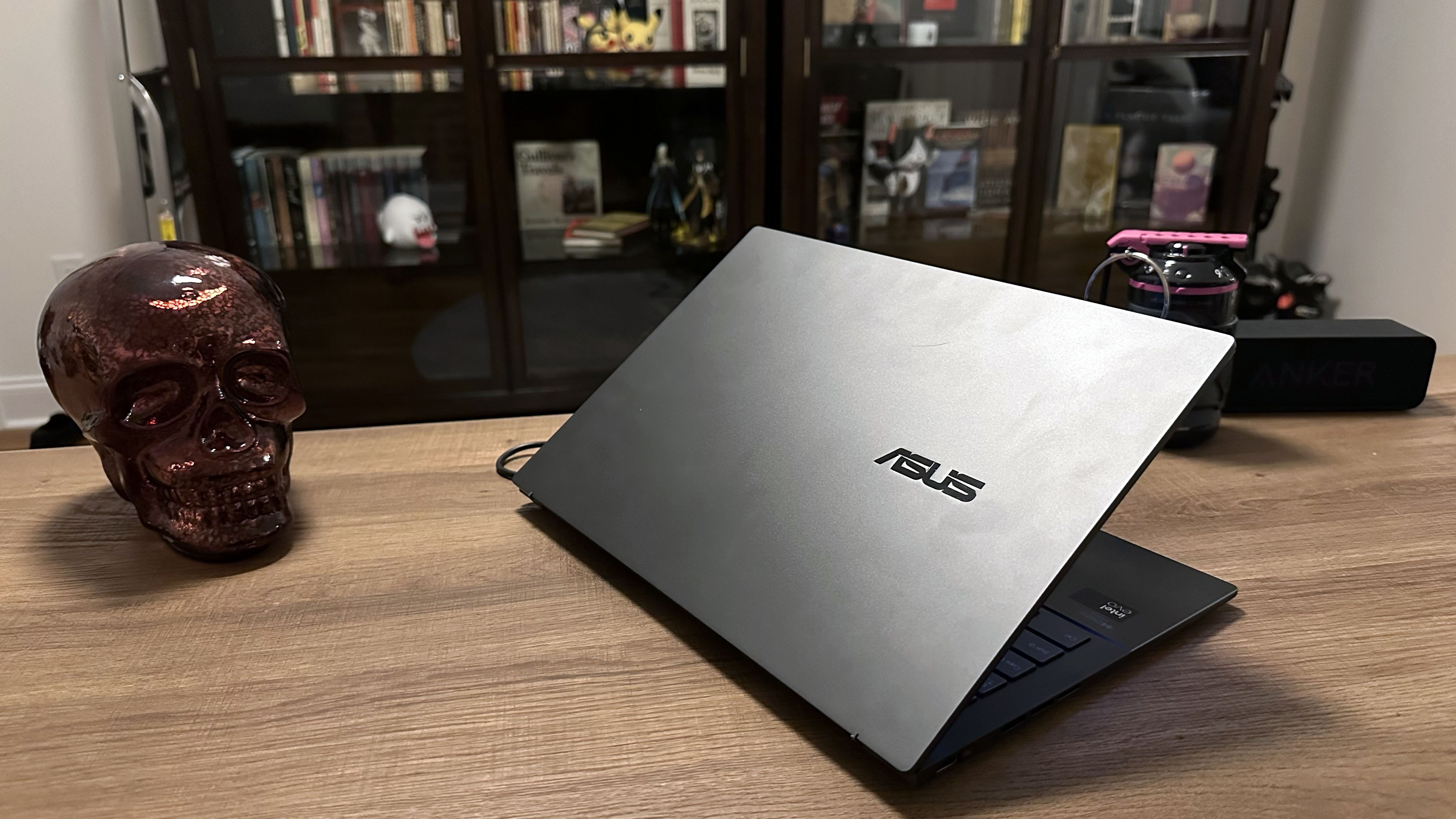

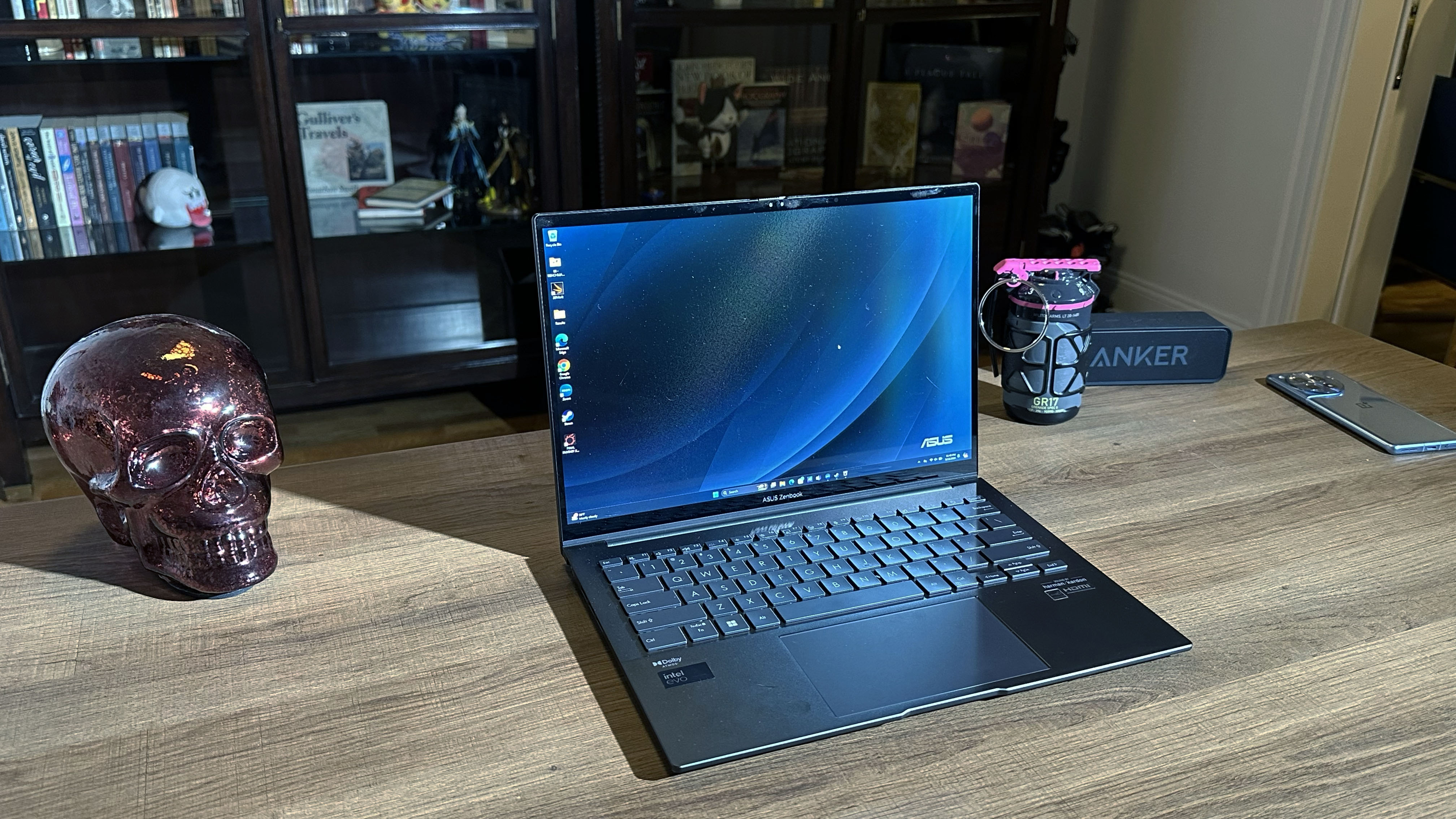
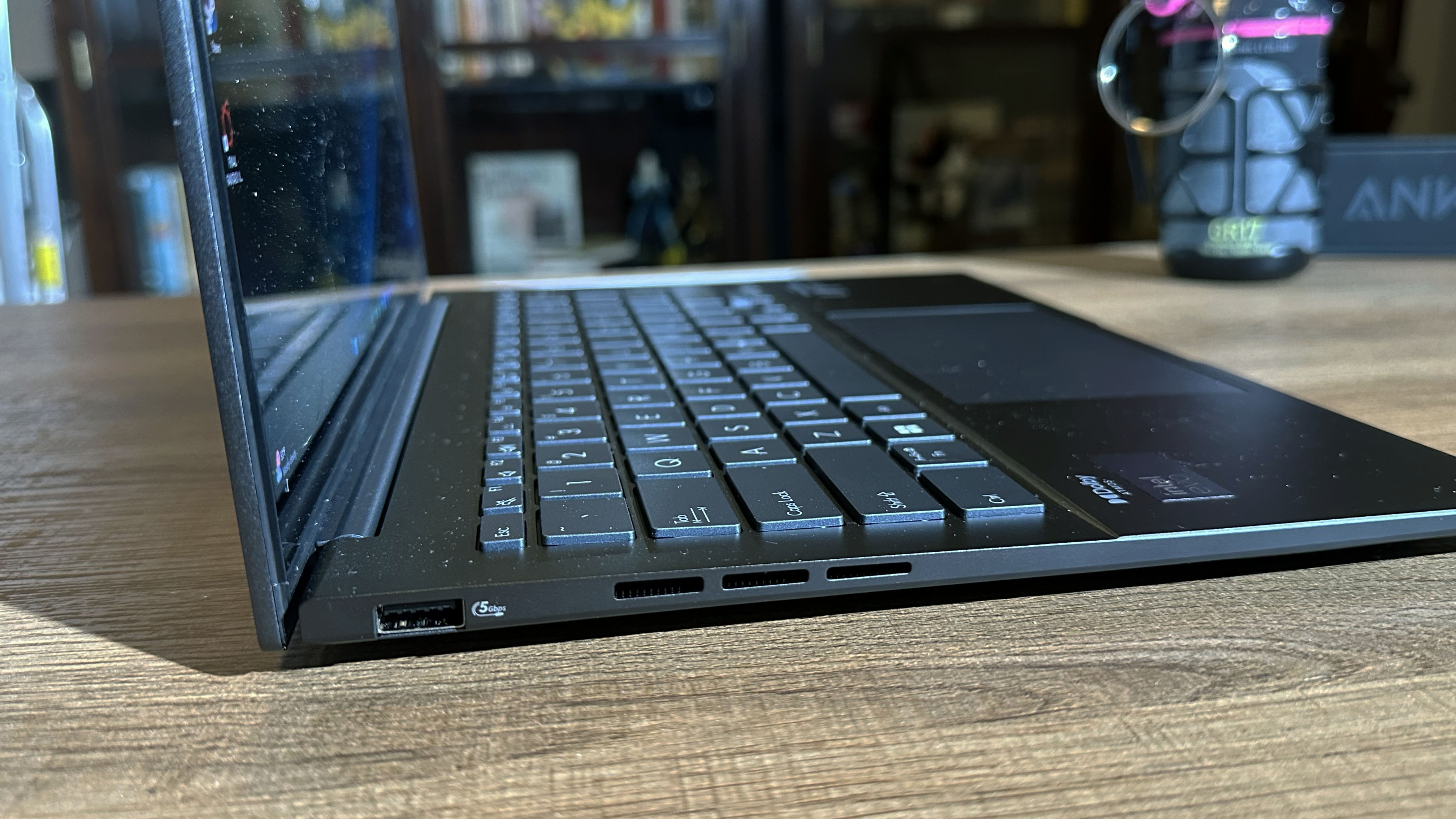
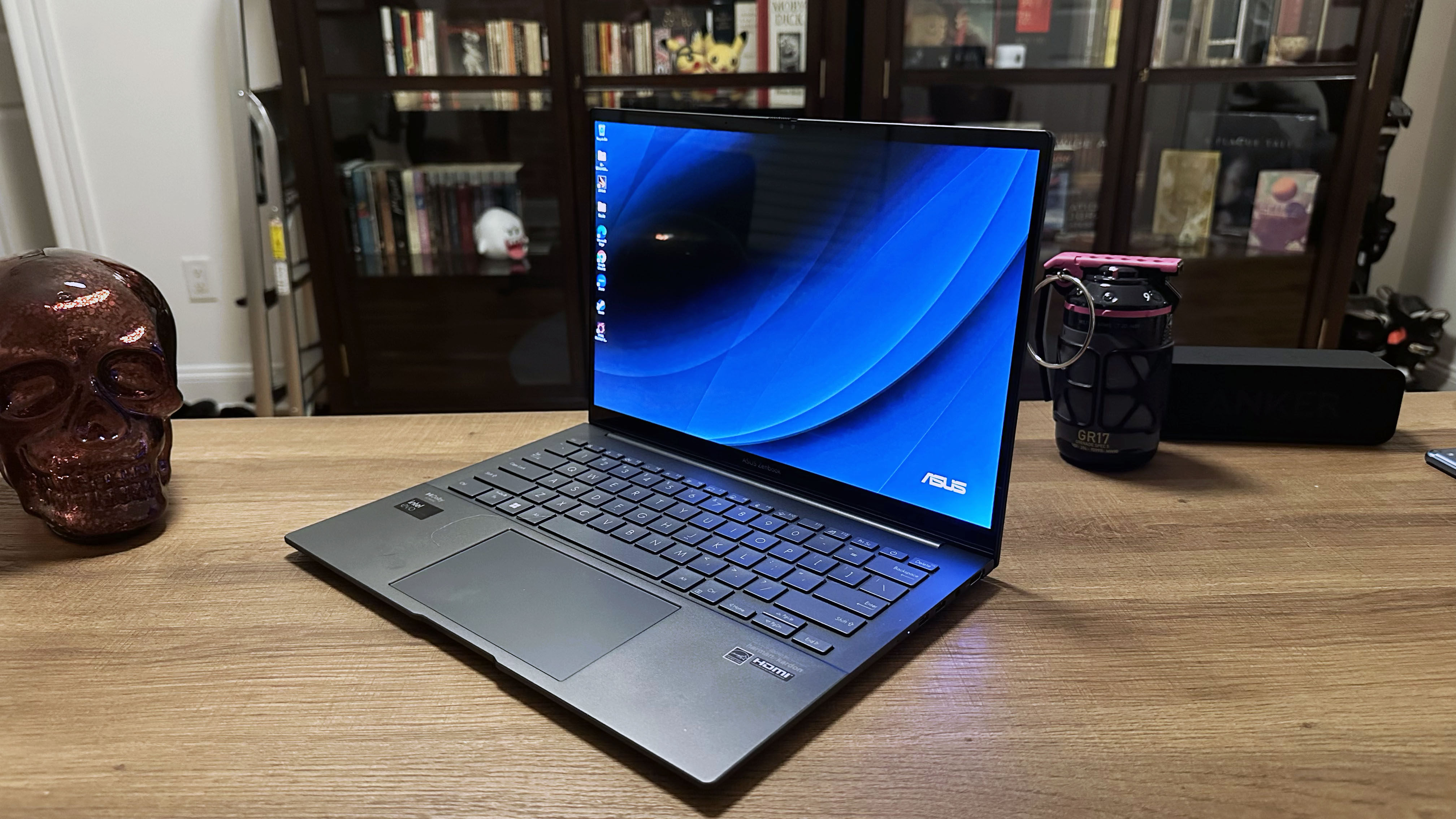
Specifications
Reasons to buy
Reasons to avoid
Asus has been on a roll with the Zenbook 14 OLED line for a few years, so it is no longer a surprise that this early 2024 Zenbook takes yet another significant leap forward.
This is in no small part due to the new Intel Core Ultra chipset inside, which puts the Zenbook 14 OLED on par with any productivity and light content creation laptops on the market. It also absolutely blew the roof off our battery life test, with 15 hours and 52 minutes in our test. That's the longest a traditional Windows laptop has lasted in recent memory.
Divining into some of the specifics on performance, it overtook the 13-inch MacBook Air M3 in multi-core Geekbench 6.2 (12,707 vs. 12,087). That wasn't its only win against the much-vaunted MacBook. The Zenbook also beat it in our Handbrake 1.6 test by converting a 4K video to 1080p in 6:36, over a minute faster than the Air M3's 7:54.
The OLED display looks excellent in person, but the benchmarking put it in the middle of the road when it comes to the DCI-P3 color gamut at 79.8 percent, that's below the mainstream average of 85.2 percent and just slightly ahead of the MacBook Air M3 (77.8 percent). It is extremely color accurate with a Delta-E of 0.21, relevant for content creators. Display brightness is a weak point against its competition at 339 nits, which is not a terrible result, but it's something we want to see Asus address for the next model.
The Zenbook weighs 3 pounds, not exactly an ultralight, but not something that will weigh you down too much when you're going from class to class or while commuting. Overall, the Zenbook 14 OLED ticks just about every box we like to see for a student laptop while going above and beyond with its performance and battery life. This laptop should comfortably last through four years of college or for a high school student preparing to head to college in the next year or two.
See our full Asus Zenbook 14 OLED (Q425M) review
More like this: Best laptops for college 2024
Click to view chart data in table format
| Header Cell - Column 0 | Asus Zenbook 14 OLED (Q425) | MSI Prestige 14 Evo A12M |
|---|---|---|
| Geekbench 5.4 (Higher is better) | 8590 | 9549 |
| Handbrake time (Lower is better, (MM.SS)) | 8.4 | 8.31 |
| Battery life (HH.MM) | 10.52 | 8.45 |
| DCI-P3 Color Gamut (Higher is better) | 96.00% | 81.00% |
| Display Brightness (Nits) | 377 | 295 |
The best Windows gaming laptop: Lenovo Legion Pro 7i (Gen 9)
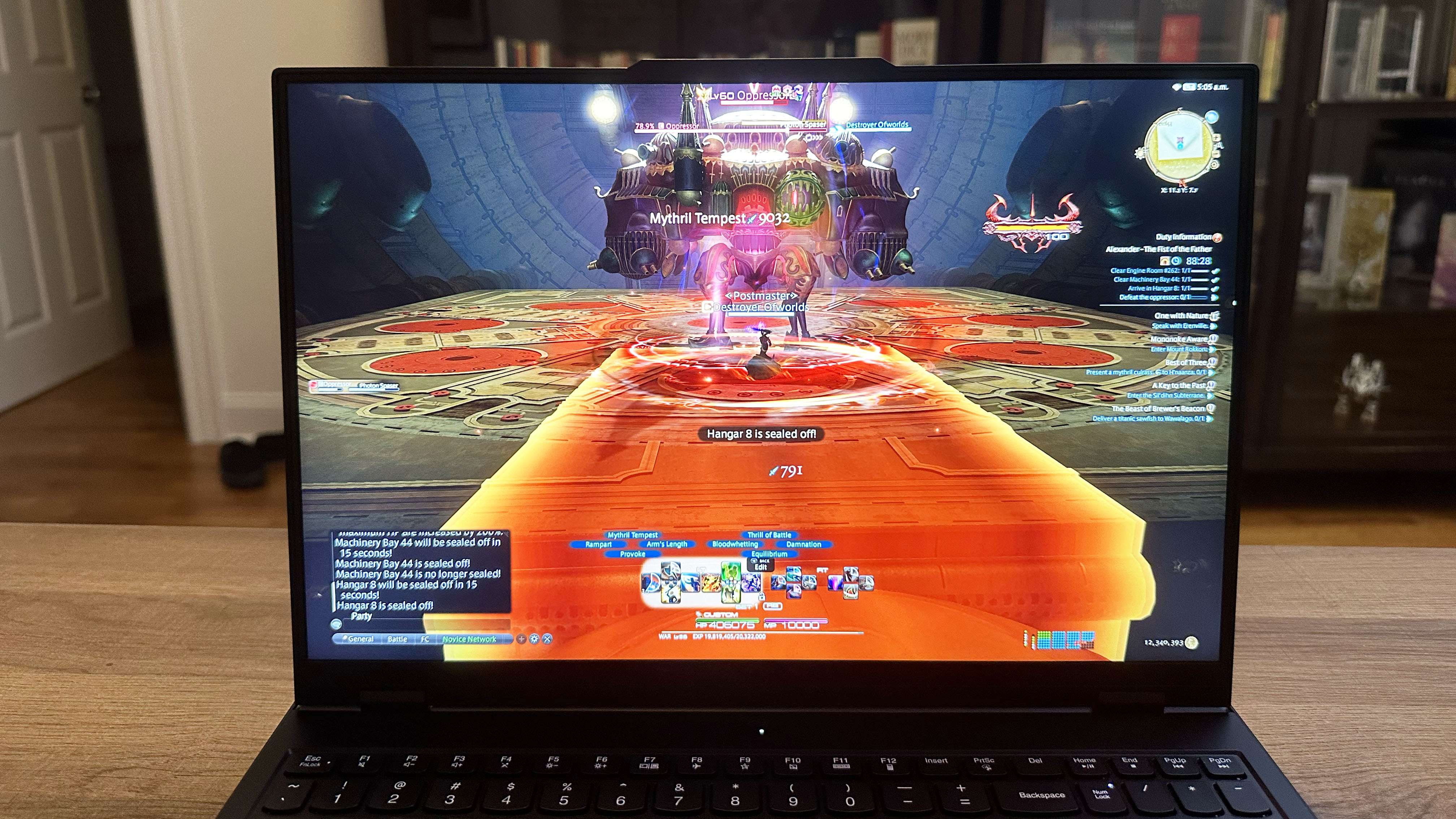
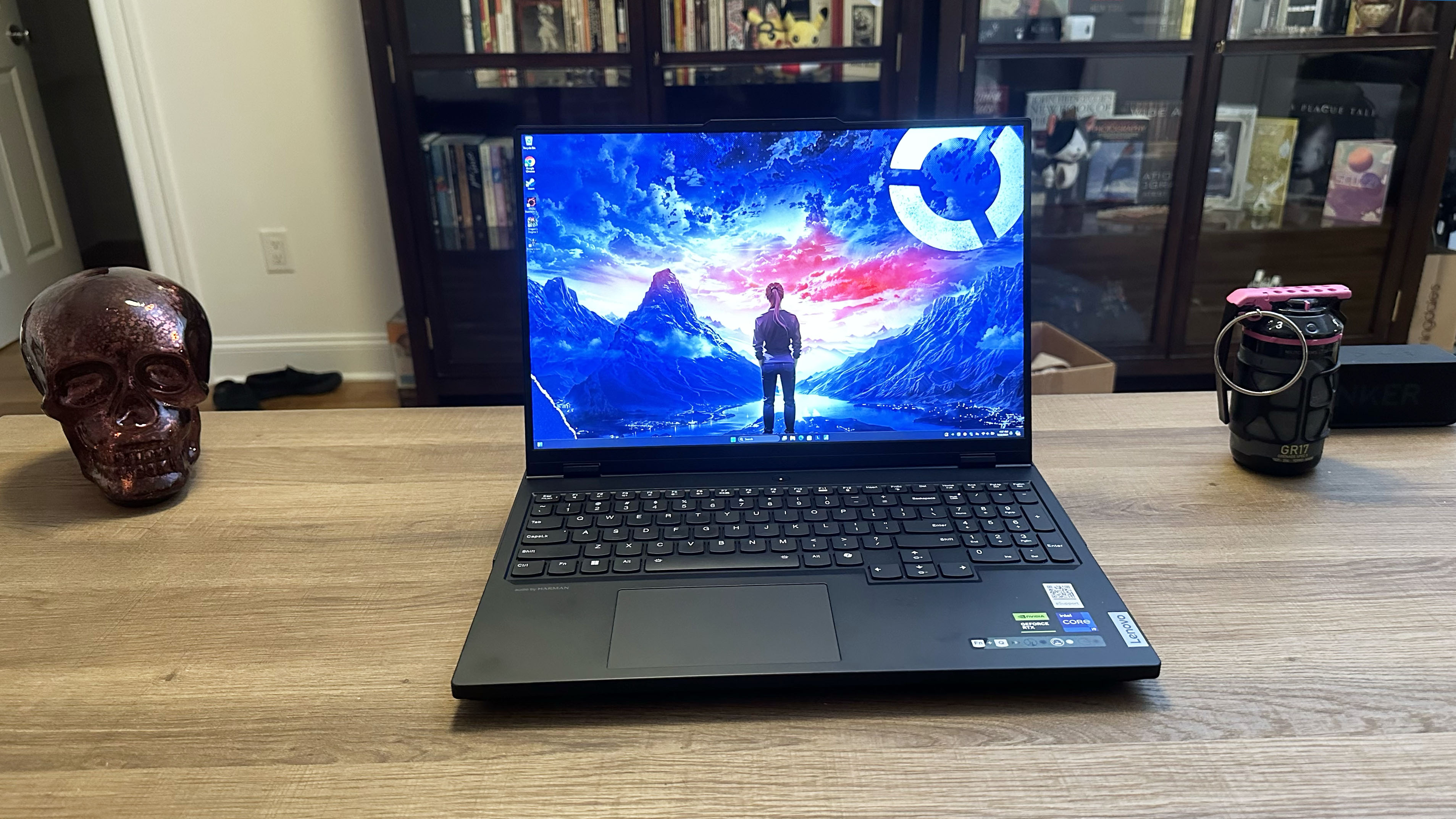
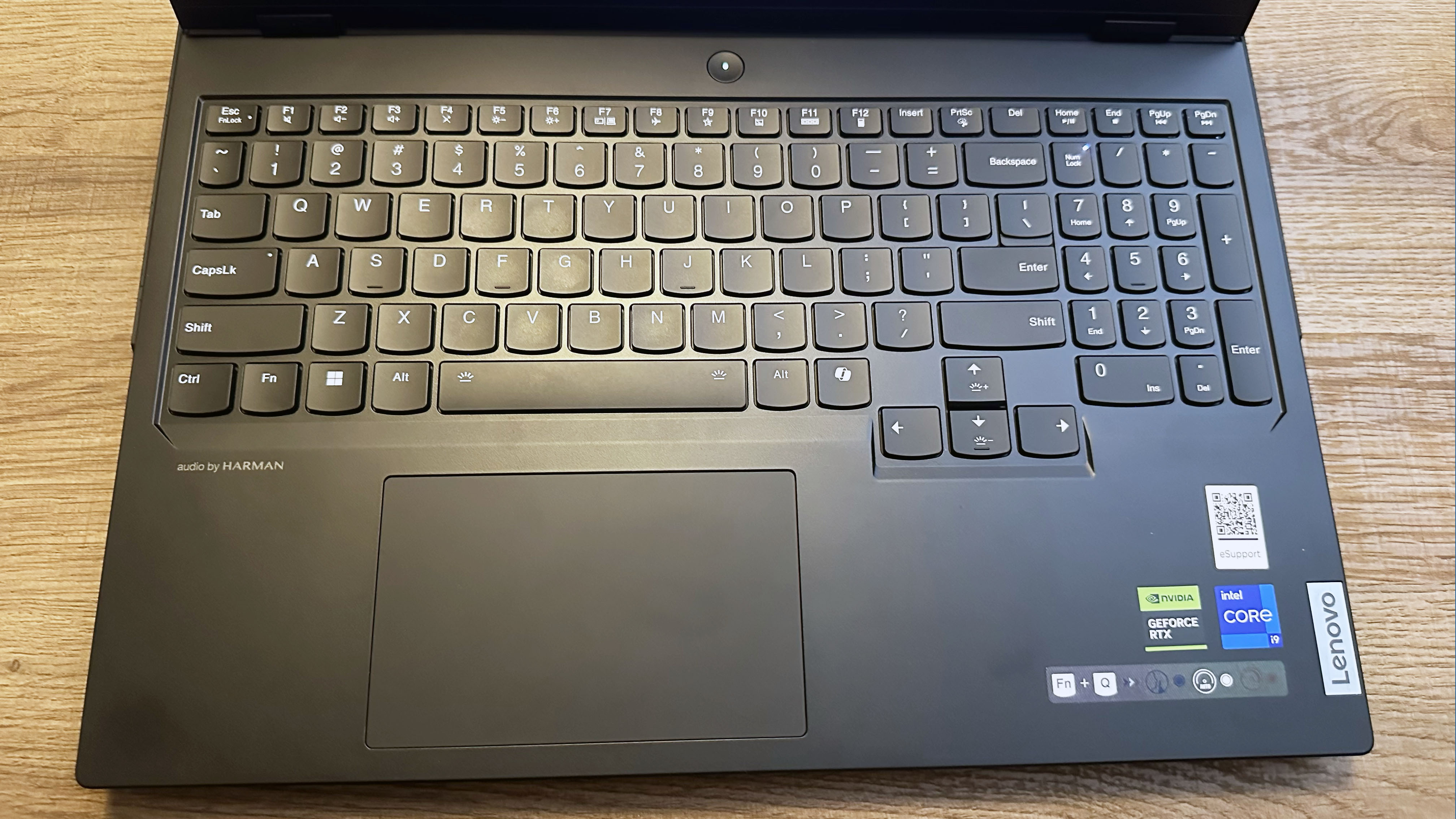
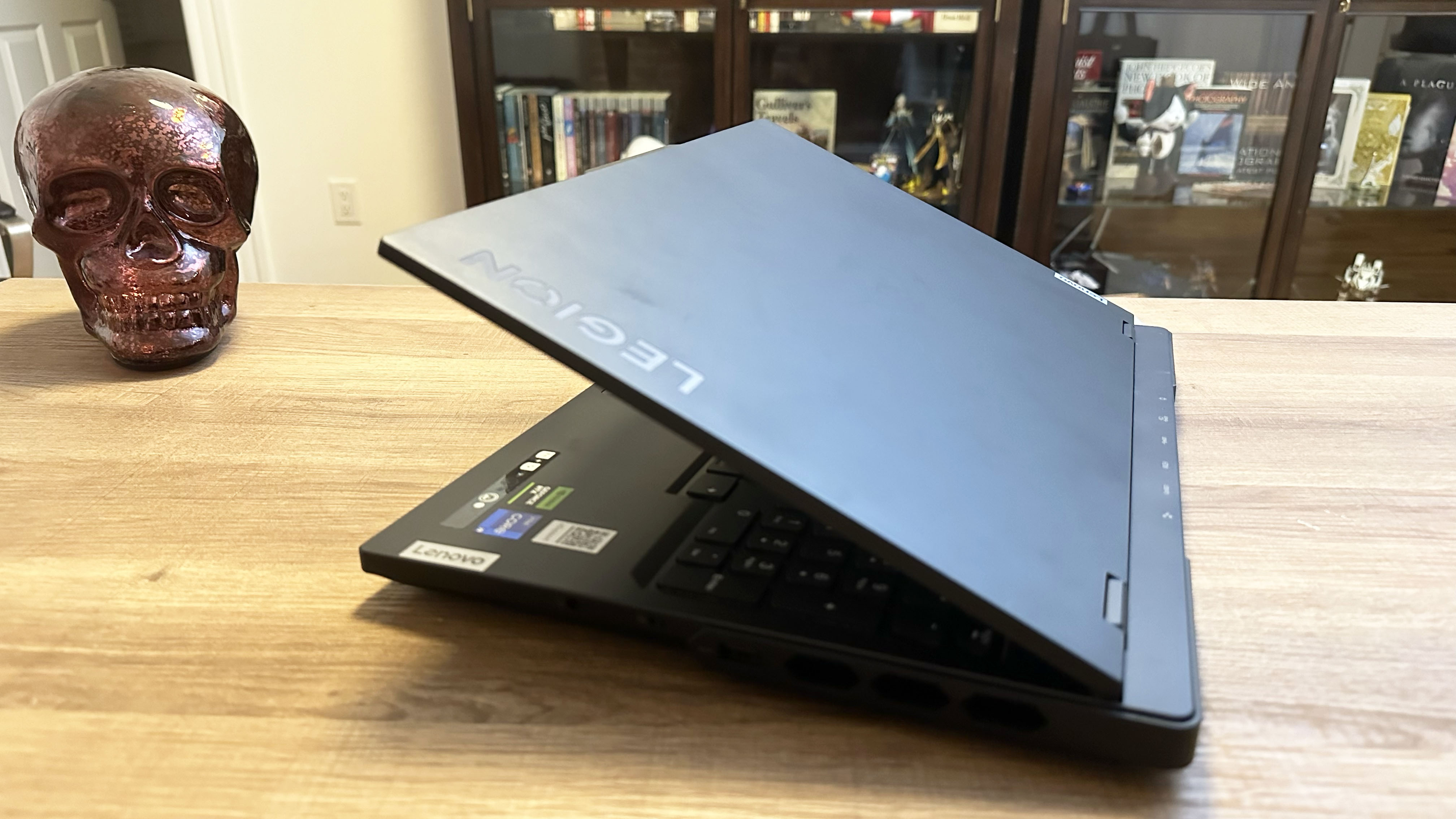
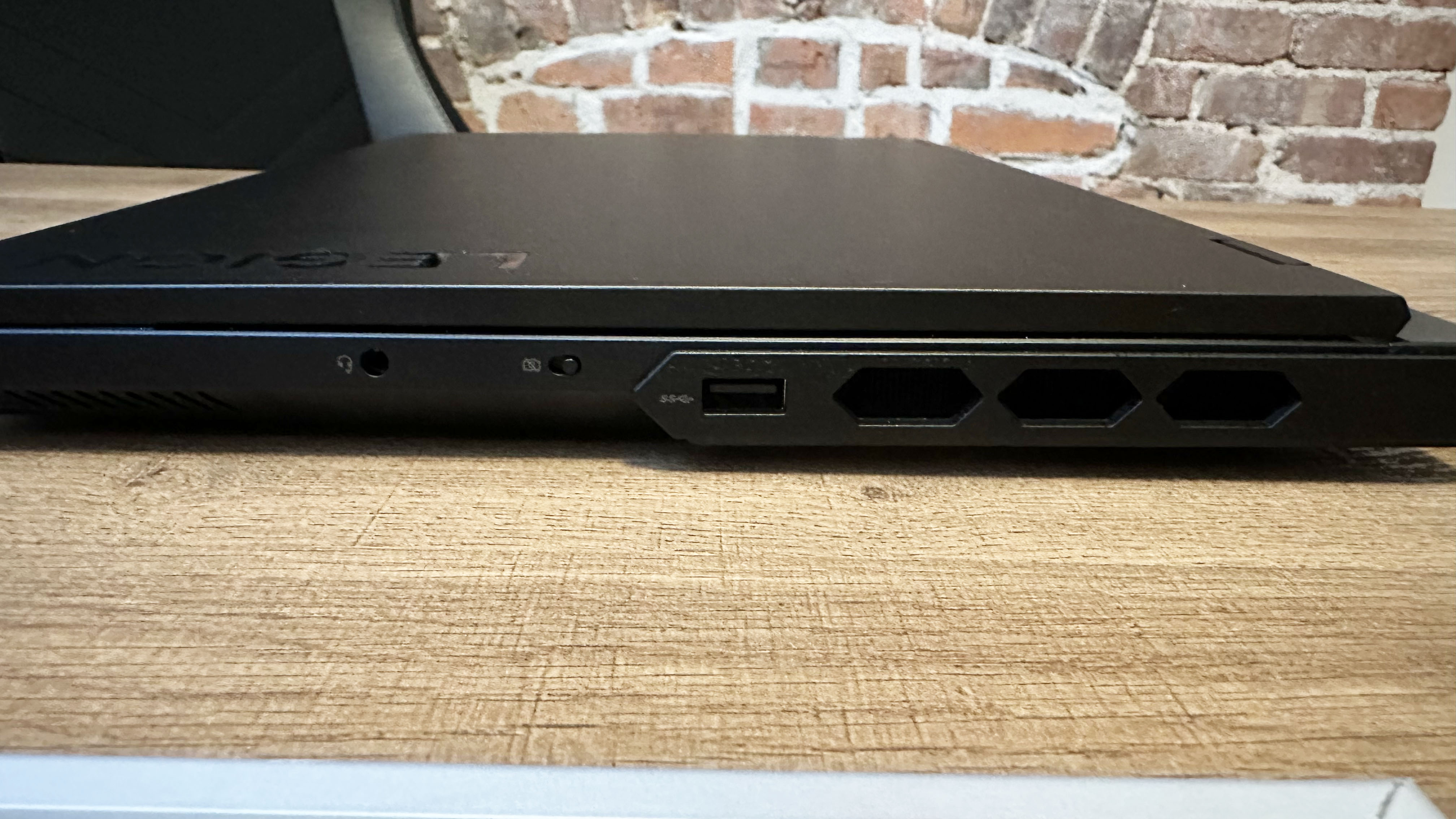
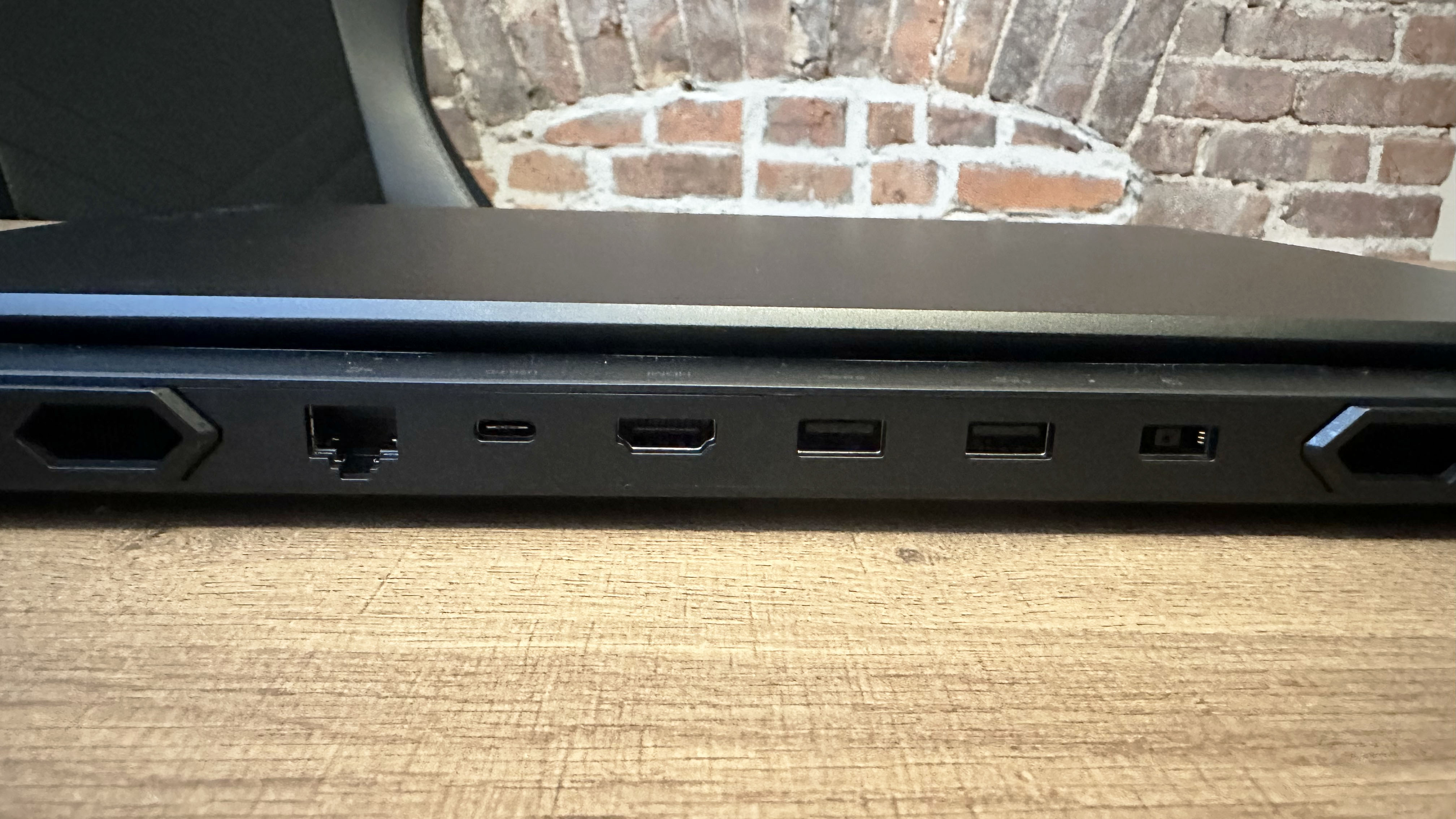
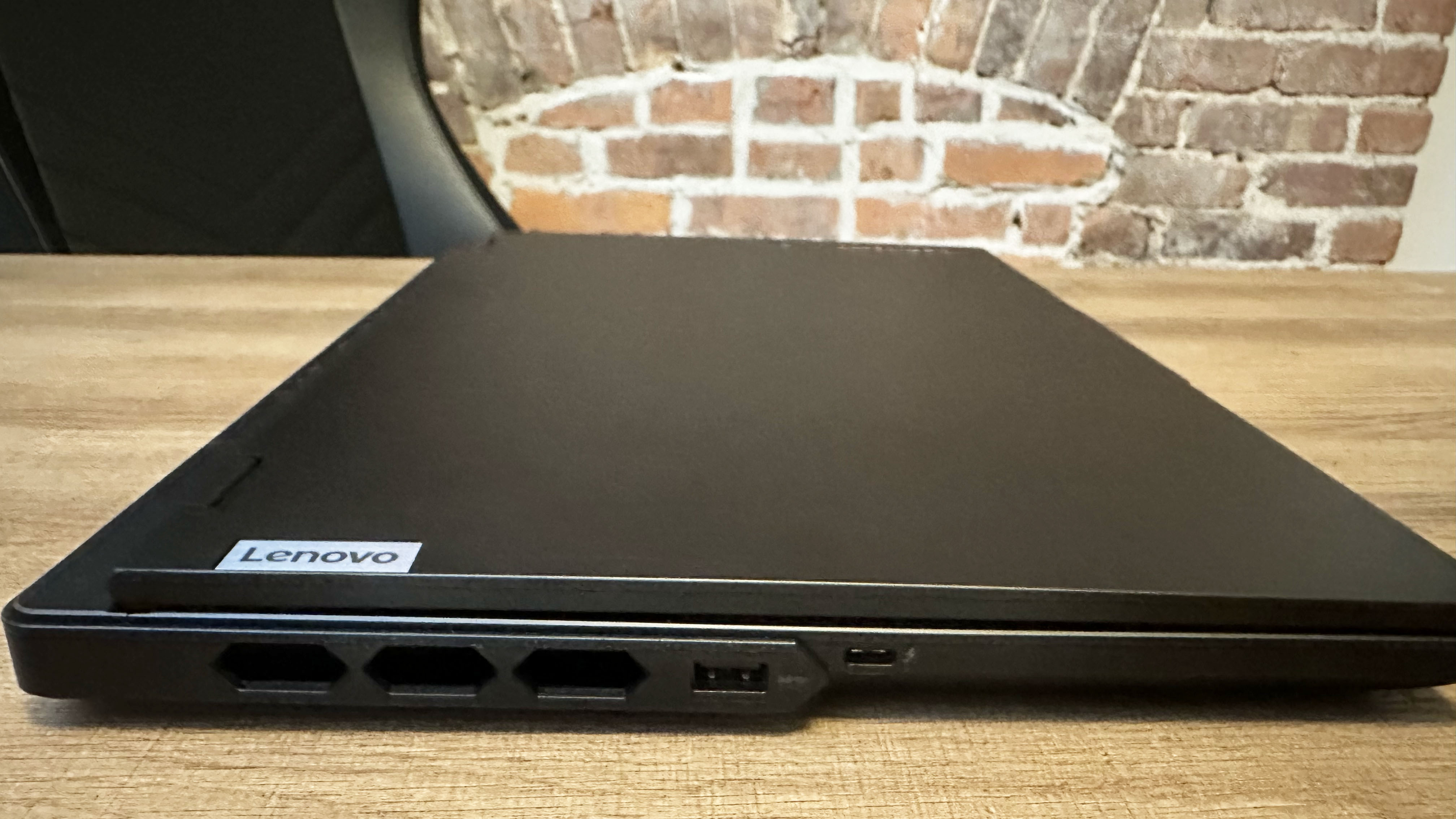
Specifications
Reasons to buy
Reasons to avoid
The Lenovo Legion Pro 7i (Gen 9) kicks the old challengers to the curb with its powerful Intel Core i9-14900HX processor and an Nvidia GeForce RTX 4080 GPU with 12GB of VRAM. While performance is a big factor for a great gaming laptop, it isn't the only factor, the bright and vivid display, loud audio, and responsive keyboard make for an unbeatable combo. Did I mention you can often find it for less than $2,500 directly from Lenovo.
In our review, staff writer Madeline Ricchiuto said, "The Lenovo Legion Pro 7i is a gamer’s gaming laptop," which nicely sums up this outstanding, but not overpriced choice for gamers.
Let's dig into the details and our extensive testing of this laptop a bit. The Lenovo Legion Pro 7i averaged 105 frames per second on the Far Cry 6 (Ultra, 1080p) benchmark, which was enough to inch past the MSI Vector 16 HX (98 fps) and its previous gen (97 fps) but blew past the Alienware X16 R2 (88 fps). The Red Dead Redemption 2 (Medium, 1080p) benchmark kept things closer, with the Pro 7i at 96 fps, the Vector 16 at 104 fps, the X16 R2 at 90 fps, and the Pro 7i Gen 8 at 69 fps.
Don't ignore the display when buying a gaming laptop, it's almost as much of the experience as the performance. Lenovo certainly heeded our guidance there with the glorious 16-inch, 2560 x 1600, 240Hz panel delivering an amazing 108.7% of the DCI-P3 color gamut and 456 nits of brightness. This is as immersive as it gets without putting on a VR headset.
If you are regularly gaming on the go then a good keyboard is crucial as well, and the widely spaced keys combined with a crisp and springy actuation force will allow you to avoid packing a cumbersome gaming keyboard.
While the best gaming headset is still worth purchasing for online gaming, if you are strictly worried about audio output, the Legion Pro 7i offers the Harman Super Linear Speaker System. Packed with two woofers, two tweeters, and a smart amp, it's a strong standalone acoustic experience.
At nearly 6 pounds, the Lenovo Legion Pro 7i Gen 9 is a little heavier than we'd like, and the 4 hours and 29 minutes of battery life aren't going to win any awards either, but if you want maximum performance, you'll need to keep it plugged in anyway.
But overall, the Lenovo Legion Pro 7i is the champ.
Read our full Lenovo Legion Pro 7i (Gen 9) review.
More like this: Best gaming laptops
Click to view chart data in table format
| Header Cell - Column 0 | Lenovo Legion Pro 7i Gen 9 | Lenovo Legion Pro 7i Gen 8 | Alienware X16 R2 | MSI Vector 16 HX A14VHG |
|---|---|---|---|---|
| Geekbench 6 (Higher is better) | 17329 | 14740 | 13874 | 18055 |
| Handbrake conversion (Lower is better, MM.SS) | 3.11 | 3.31 | 3.57 | 2.37 |
| Battery life (HH.MM) | 4.29 | 5.46 | 6.31 | 6.32 |
| DCI-P3 Color Gamut (Higher is better) | 108.70% | 78.10% | 78.90% | 108.20% |
| Brightness (Higher is better, Nits) | 456 | 488 | 334 | 495 |
Best Windows 2-in-1 laptop: The best Windows gaming laptop
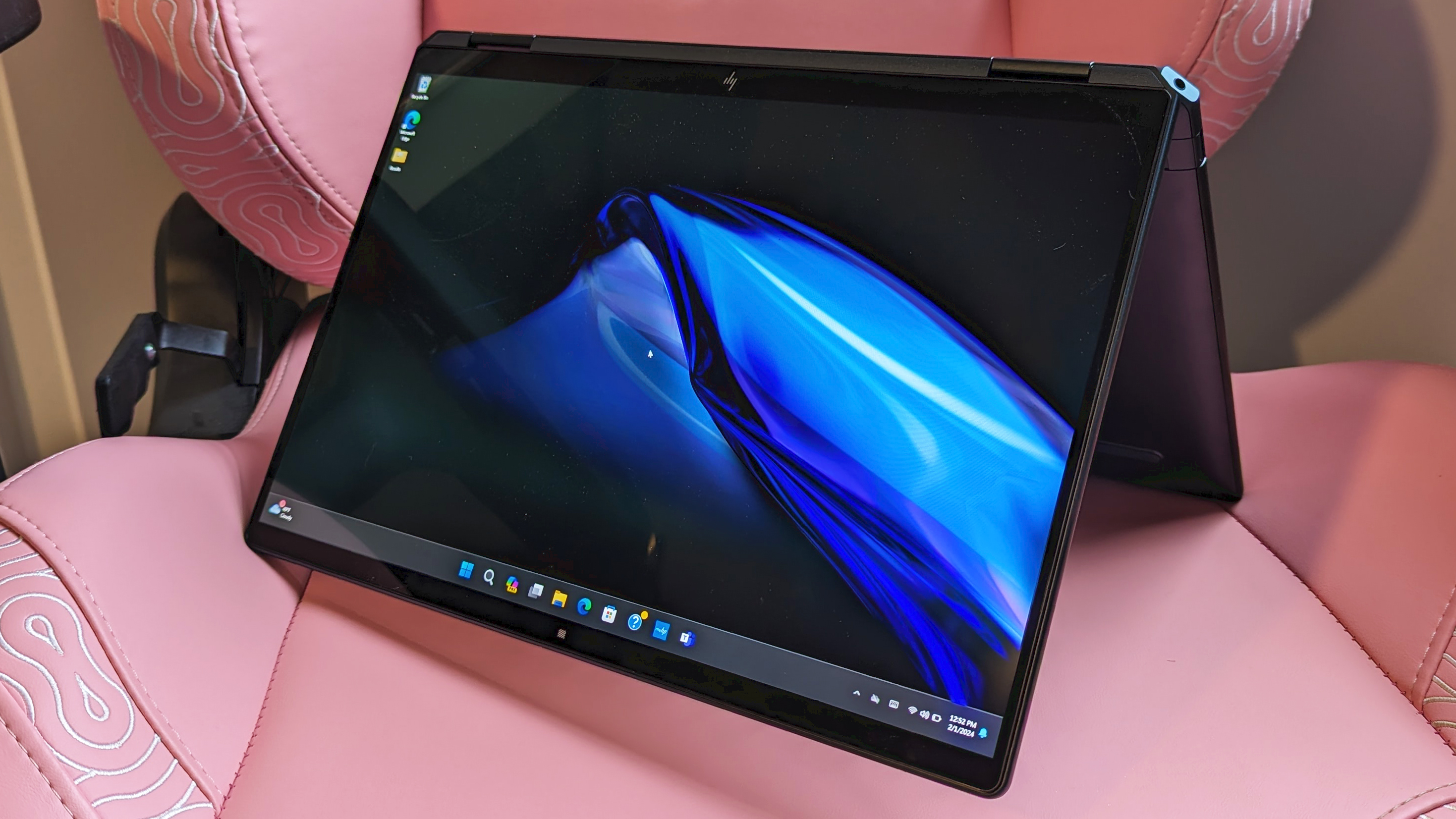
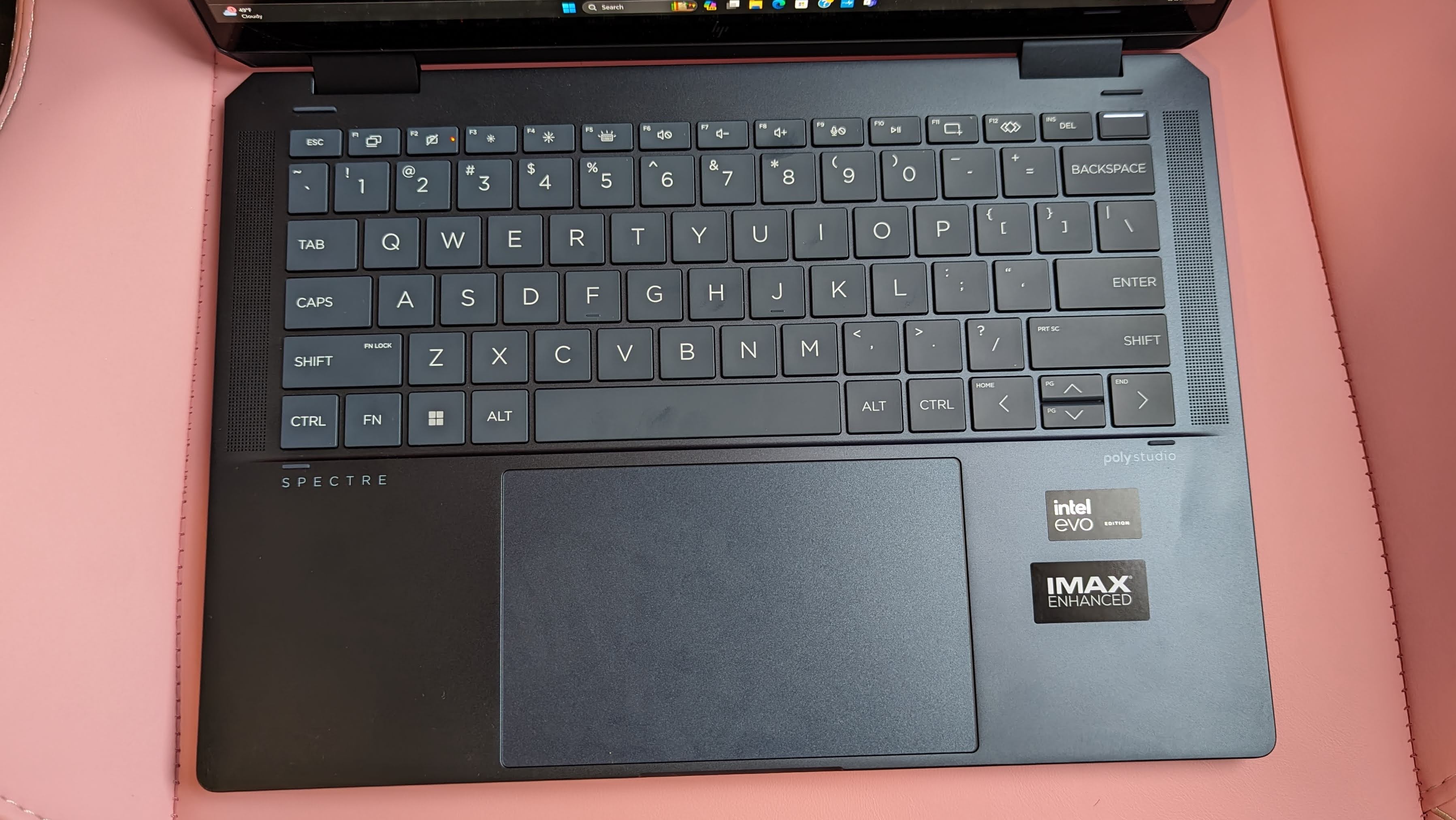
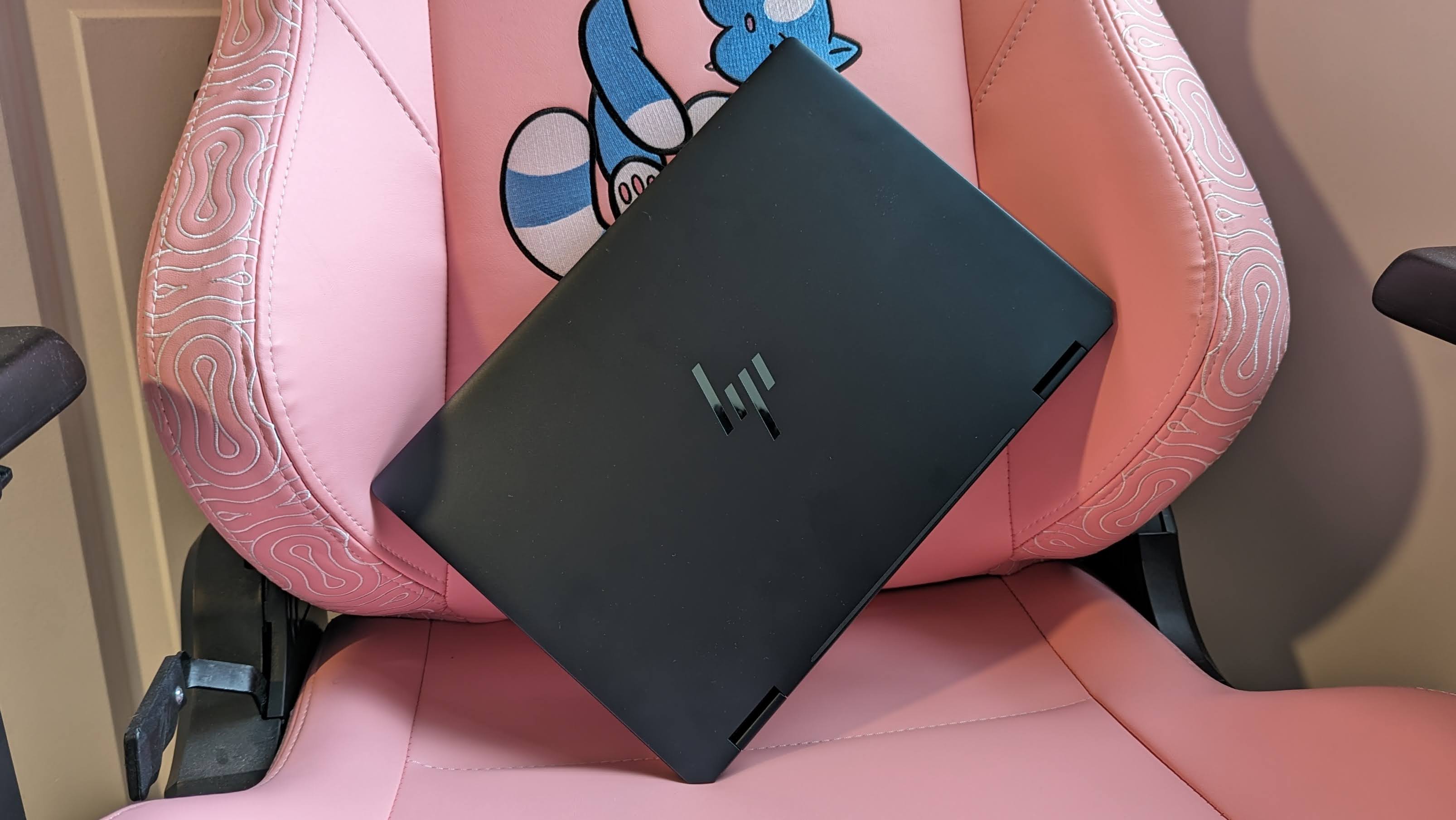
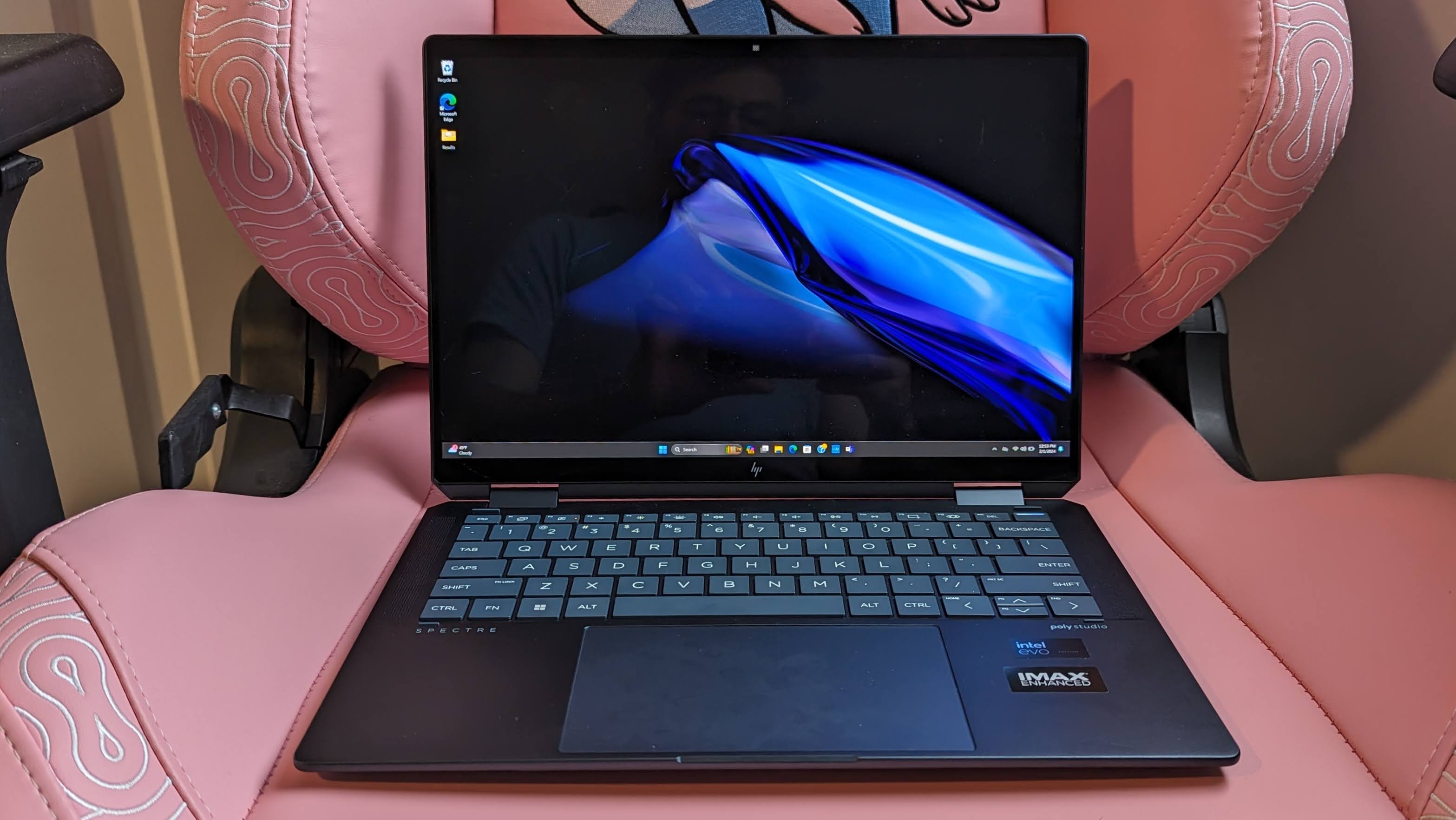
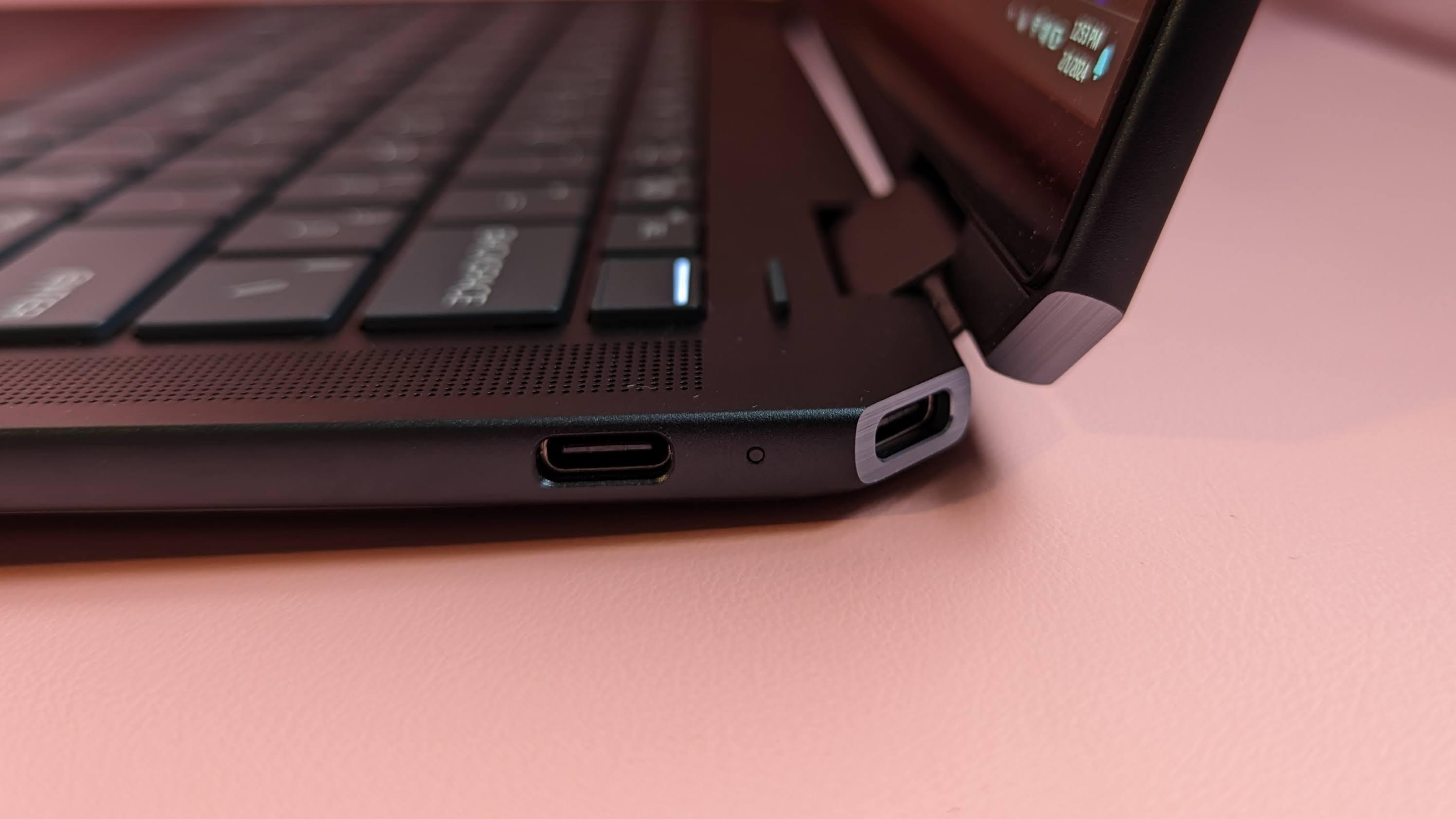
Specifications
Reasons to buy
Reasons to avoid
The Intel Core Ultra version of the HP Spectre x360 14 takes everything we've loved about this laptop line in recent years and turns it up a notch. In addition to the useful 2-in-1 form factor, it has a gorgeous 2.8K OLED touchscreen display for creating or viewing content.
The laptop weighs 3.2 pounds, which is pretty light for a 14-inch 2-in-1. However, thanks to Intel's power-sipping CPU, it still crushed our battery life test, with over 11 hours on a single charge! That's one of the best results we've ever seen from a 2-in-1. Despite its frugal battery usage, the Intel Core Ultra and Arc GPU blew our reviewer away, putting up better Geekbench and 3D Mark results than many heavier clamshell laptops.
So why isn't it perfect? While the display is bright and colorful, we've seen better benchmarks from competitors. However, the rest of the package makes it impossible to argue with the HP Spectre x360 14 as the best 2-in-1 around, which is why the notebook earned 4.5 stars and our coveted Editor’s Choice award.
See our full HP Spectre x360 14 (2024) review
More like this: Best 2-in-1 laptops 2024
Click to view chart data in table format
| Header Cell - Column 0 | HP Spectre x360 14 (2024) | MacBook Pro 14 M3 | Acer Swift Go 14 (2023) |
|---|---|---|---|
| Geekbench 6 (Higher is better) | 12,358 | 11870 | 12434 |
| Handbrake time (Lower is better, (MM.SS)) | 7.3 | 5.38 | 3.18 |
| Battery life (HH.MM) | 11.01 | 17.16 | 09:50 |
| DCI-P3 Color Gamut (Higher is better) | 85.80% | 81.30% | 79.10% |
| Display Brightness (Nits) | 366 | 558 | 374 |
Best Windows laptop battery life: Dell XPS 13 9345
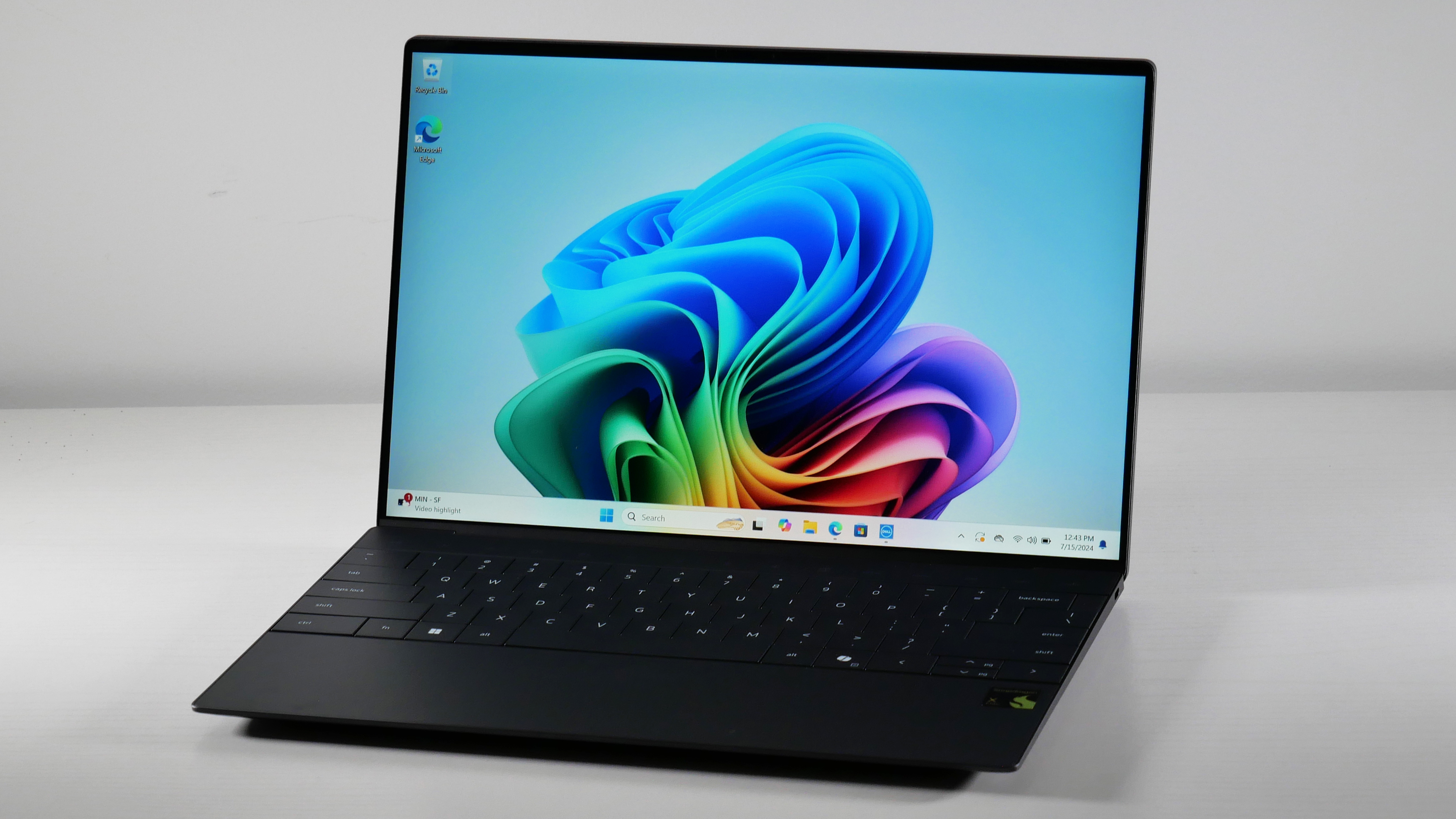
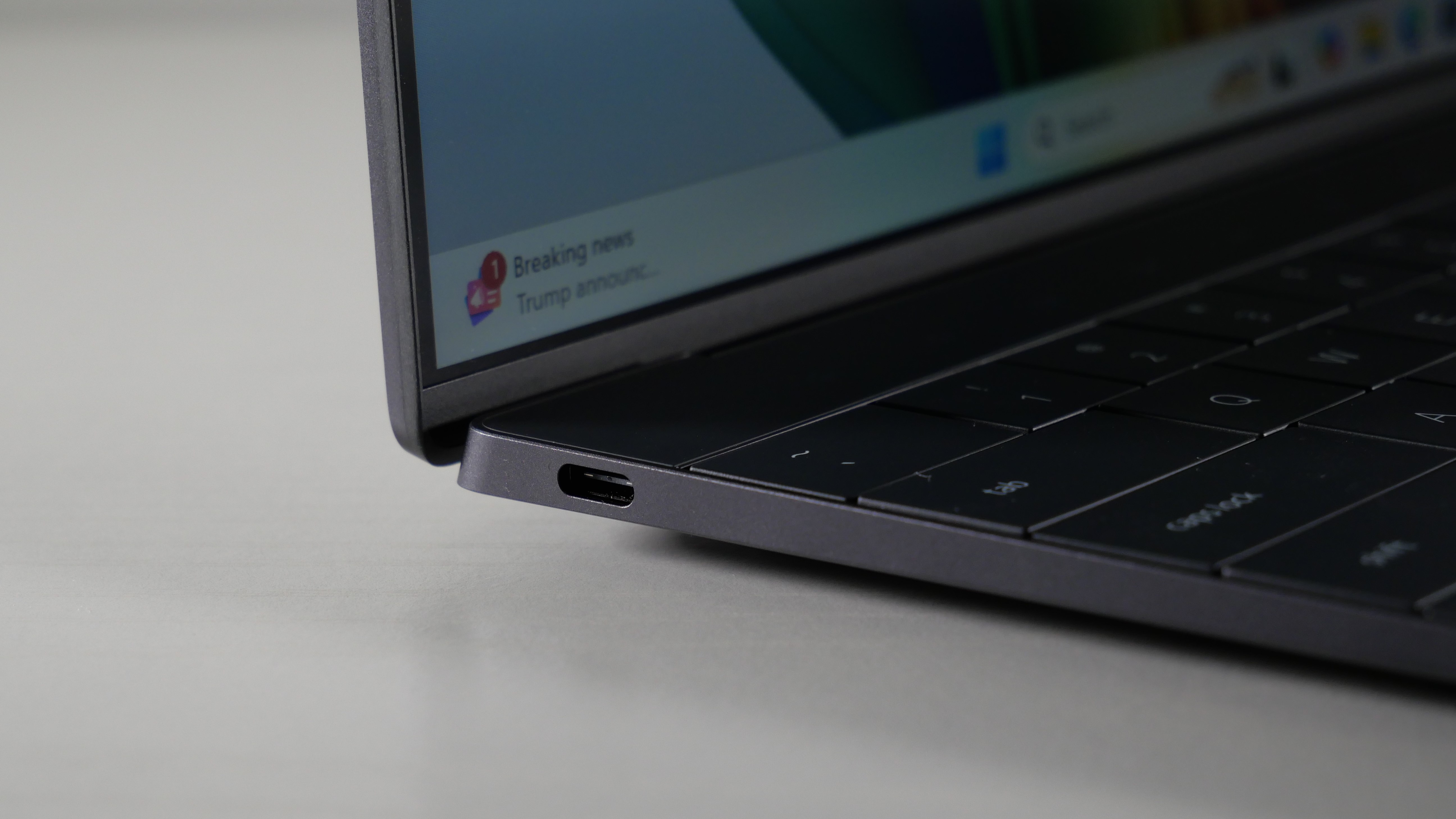
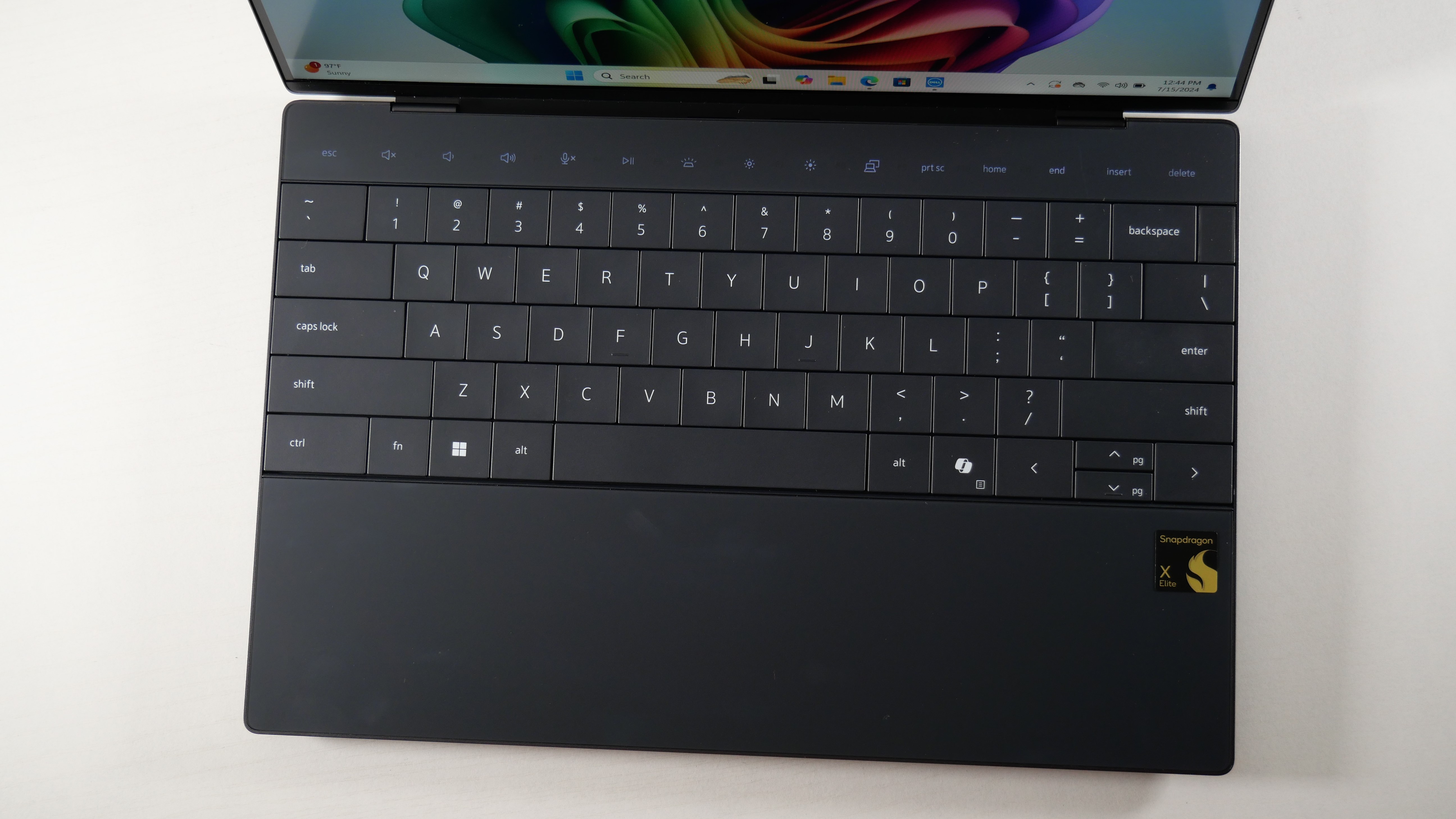
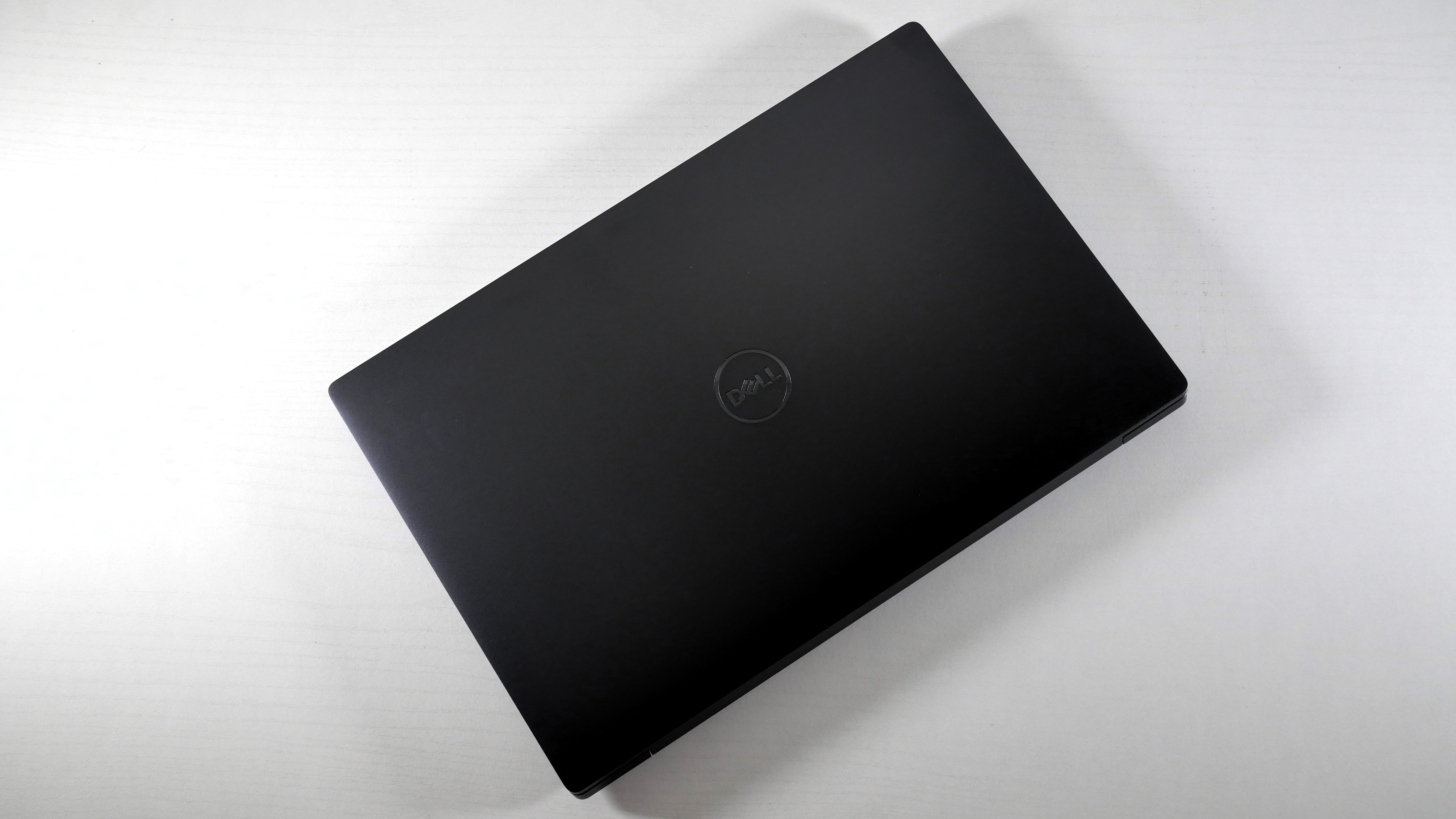
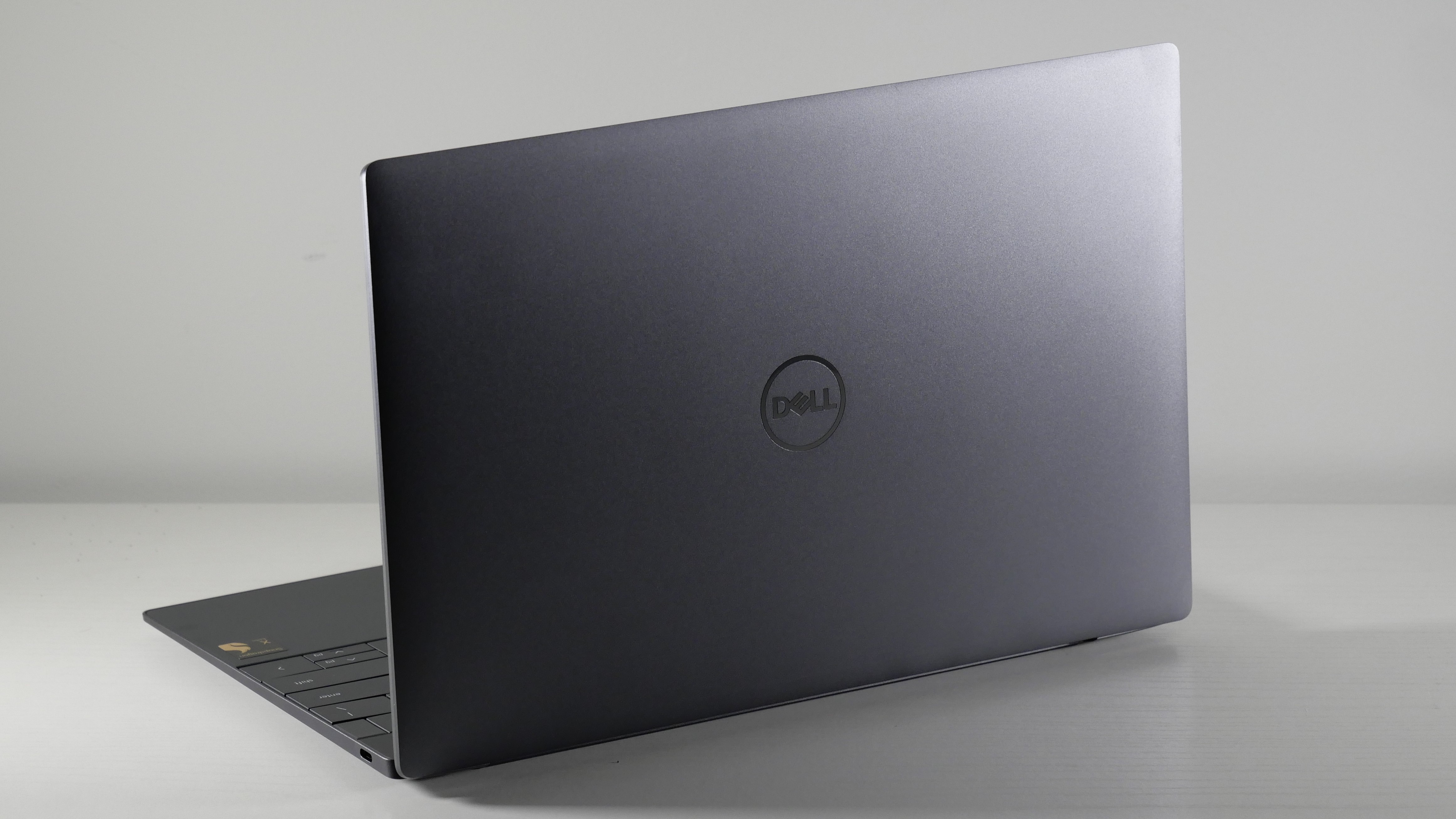
Specifications
Reasons to buy
Reasons to avoid
The Dell XPS 13 9345 is the first generation of Copilot+ PCs powered by Qualcomm's Snapdragon X Elite chipset. This gives you access to various AI-fueled Windows features that promise to enhance your laptop's work and play. Even if you aren't sold on the AI revolution just yet, this laptop offers a potent combination of features.
The battery life is the undeniable star of this show, coming in at 19 hours and 1 minute and an even more astounding 20 hours and 51 minutes after we installed the BIOS 1.7.0 update. The average premium laptop reached 11 hours and 13 minutes in this test. If you are a student or a frequent traveler who needs to stay powered up on the go, the Dell XPS 13 9345 is unmatched.
Lest you think that battery life comes from a power-sipping processor, the Snapdragon X Elite also delivers an incredible 14,635 multi-core score in the Geekbench 6.3 overall performance test. That obliterates the premium laptop average of 8,927 and its nearest competitors like the MacBook Air M3 (12,087) or Zenbook 14 (12,707).
It's not the perfect laptop, though. Two ports will leave some users searching for a docking station or USB-C hub. The display is rather dull, at just 66.9% of the DCI-P3 color gamut, and our reviewer found the keyboard cramped.
While the Dell XPS 13 9345 remains the longest-lasting laptop we recommend to most people, if you are in the market for a business laptop, the Lenovo ThinkPad T14S Gen 6 narrowly outlasted it at 21 hours and 3 minutes.
See our full Dell XPS 13 9345 (Snapdragon X Elite) review
More like this: Laptops with the best battery life in 2024
Click to view chart data in table format
| Header Cell - Column 0 | Dell XPS 13 9345 | MacBook Air 13 M3 | Asus Zenbook 14 OLED |
|---|---|---|---|
| Geekbench 6 (Higher is better) | 14,635 | 12087 | 12707 |
| Handbrake time (Lower is better, (MM.SS)) | 4.41 | 6.32 | 6.36 |
| Battery life (HH.MM) | 19.01 | 15.13 | 15.52 |
| DCI-P3 Color Gamut (Higher is better) | 66.90% | 77.80% | 79.80% |
| Display Brightness (Nits) | 456 | 476 | 339 |
The best Windows business laptop: Asus ExpertBook P5 (P5405)
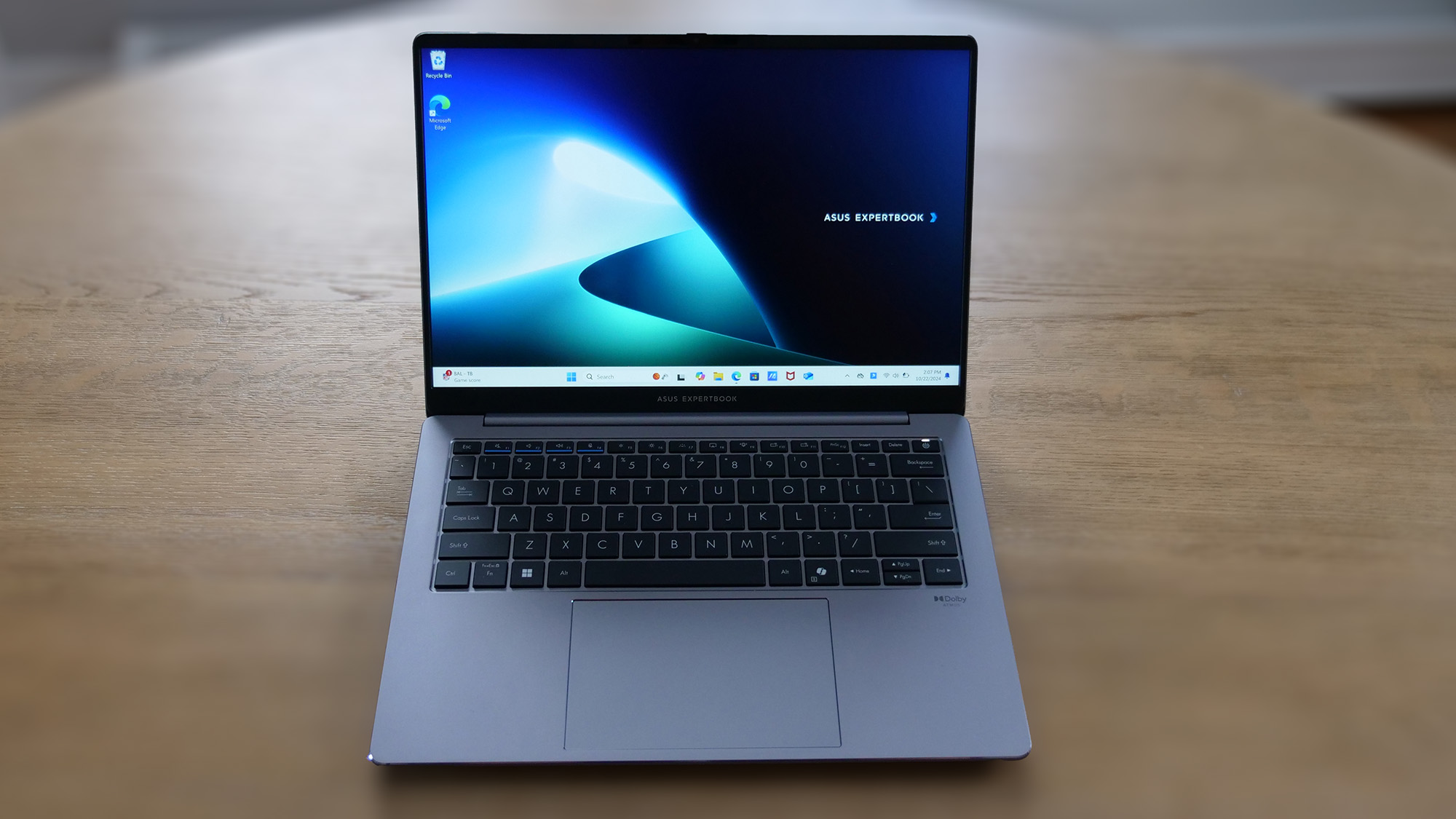
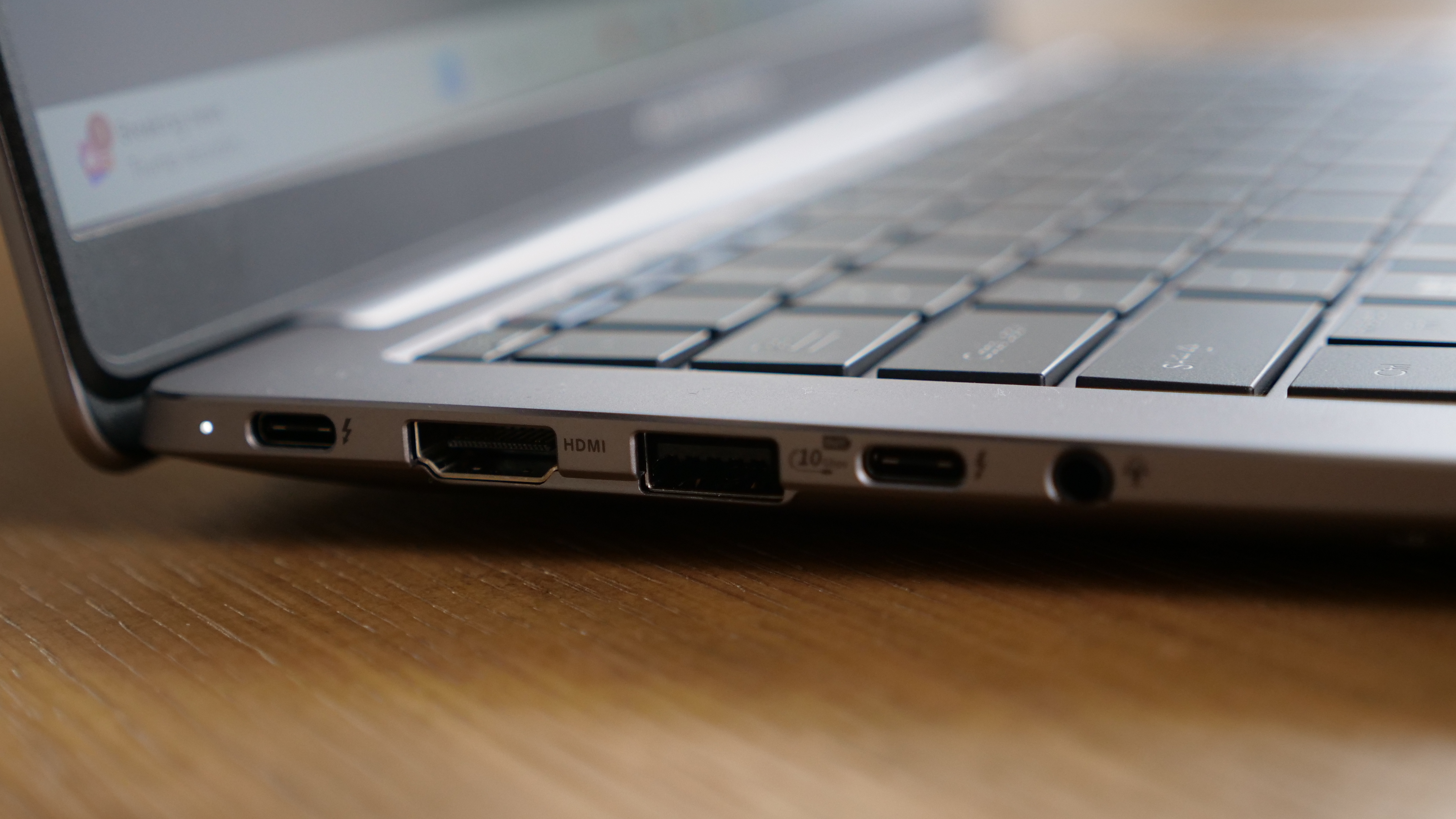
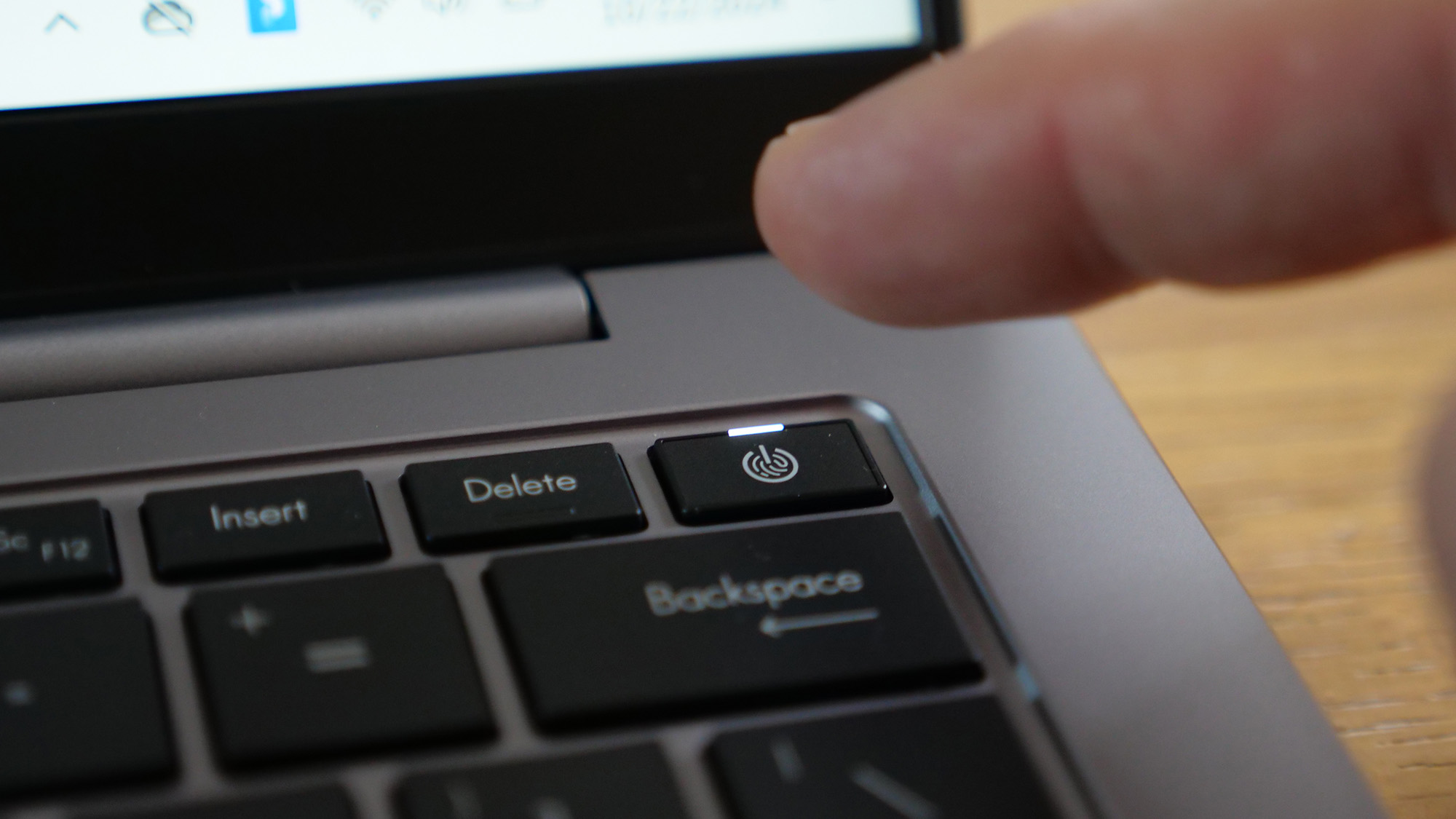
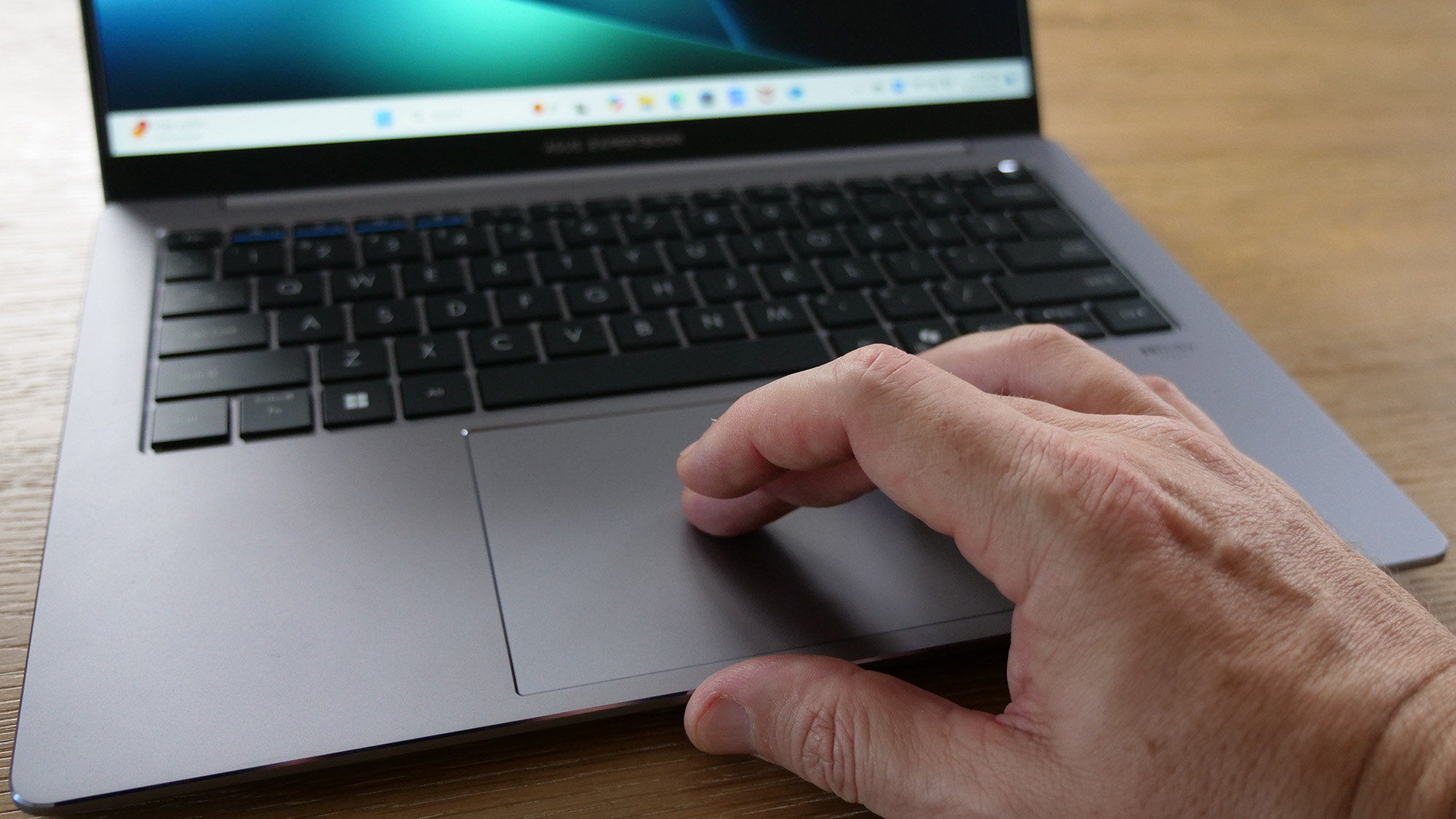
Specifications
Reasons to buy
Reasons to avoid
The Asus ExpertBook P5 is a near-perfect business laptop that covers the needs of 99% of business users at an affordable price. The feature list includes a fast and efficient new Intel Core Ultra 7 258V processor, over 14 hours of battery life, a 144Hz display, all the RAM a multi-tasker could need, and enough ports for you to skip the USB-C hub or docking station.
In our review of the ExpertBook P5 (P5405), our managing editor, Sean Riley, said: "The 144Hz refresh rate is the most eye-catching spec...if you spend all day on your laptop, it is easier on your eyes as it reduces the almost imperceptible flicker of your laptop display." Combine this with the 465 nits of brightness, and you have one of the most formidable business laptop displays around.
The new Intel processor and ample RAM make the Asus ExpertBook P5 a productivity workhorse if you use a typical combination of office apps and browser-based tasks. Suppose you need more robust performance for photo or video work, 3D rendering, on-device LLMs, or similar tasks. In that case, you may consider an affordable workstation like the Lenovo ThinkPad P1 Gen 7 or one of the best laptops for Photoshop.
To put the ExpertBook P5's performance in perspective, it scored 11,259 in our lab's Geekbench 6 overall performance test. That's roughly 9% higher than the average premium laptop's score of 10,308 but 7-12% behind some of its competitors like the Asus Zenbook S 14, MacBook Air M3, and HP EliteBook Ultra. That's close enough that performance alone shouldn't tip you to them over the ExpertBook P5.
Another highlight of the ExpertBook P5 is the webcam. If you are regularly on video calls, you'll appreciate its color accuracy and sharp focus. No more toting around one of the best webcams in your bag.
The ExpertBook P5 also has excellent thermal management, so it won't scorch you if you need to work from your laptop or on a plane. After playing back a video for 15 minutes, the hottest temperature recorded on it was 95.4 degrees Fahrenheit. By comparison, the HP Elite x360 1040 G11 reached 103.1 degrees on the underside. The Zenbook S 14 and Zenbook S 16 reached 97.7 and 105.5, respectively, and the Dell XPS 13 reached an alarming 120.
See our full Asus ExpertBook P5 review.
Click to view chart data in table format
| Header Cell - Column 0 | Asus ExpertBook P5 (P5405) | HP EliteBook Ultra | MacBook Air 13 M3 | HP Elite x360 1040 G11 |
|---|---|---|---|---|
| Geekbench 6 (Higher is better) | 11259 | 12717 | 12087 | 12857 |
| Handbrake conversion (Lower is better, MM.SS) | 7.27 | 6.4 | 6.32 | 4.54 |
| Battery life (HH.MM) | 14.22 | 16.01 | 15.13 | 9.57 |
| DCI-P3 Color Gamut (Higher is better) | 77.30% | 84.70% | 77.80% | 80% |
| Brightness (Higher is better, Nits) | 465 | 321 | 476 | 342 |
Recently reviewed laptops
We review new laptops every week, but we don't make the best laptop selections lightly, so there aren't weekly changes to our picks. Here's a look at our recently reviewed laptops that didn't make the cut for this page, some were still excellent, while others missed the mark completely.
Dell G16 (7630) | Intel Core i7-1365HX | Nvidia GeForce RTX 4060 | 16GB RAM | 1TB SSD
Score: ★★★★½
Pros: Gorgeous display; phenomenal keyboard experience; powerful performance; decent battery life; reasonably priced
Cons: Tiny touchpad; hollow speakers
See our full Dell G16 (7630) review.
Score: ★★★★
Pros: Record-breaking battery life; strong overall performance; surprisingly lightweight
Cons: Outdated design; lackluster display; mediocre graphics performance
See our full Lenovo ThinkPad T14s Gen 6 review.
Score: ★★★½
Pros: A bright vibrant display; top-firing speakers that are LOUD; built-in smart modes are super helpful
Cons: Subpar performance scores; hit-or-miss gaming performance
See our full Lenovo Yoga Slim 7i Aura edition review.
Score: ★★★½
Pros: Vivid ISP display; comfortable and springy keyboard; over eight hours of battery life; stays cool; good gaming performance
Cons: Rough trackpad; collects many fingerprints; bass doesn’t come through the speakers
See our full Acer Predator Helios Neo 14 review.
Acer Swift X 14 (2024) | Intel Core Ultra 7 155H | Nvidia GeForce RTX 4070 | 32GB RAM | 1TB SSD
Score: ★★★★
Pros: Swift, reliable performance; powerful RTX 4070 graphics for gaming and content creation; crisp, satisfying keyboard; light and thin chassis for a laptop with a discrete GPU; decent battery life
Cons: Display doesn’t meet 100% DCI-P3 claim; display could be brighter
See our full Acer Swift X 14 review.
HP Elite x360 1040 G11 | Intel Core Ultra 7 165H | Intel Arc Graphics | 16GB RAM| 512GB SSD
Score: ★★★★
Pros: Svelte design; superb keyboard and touchpad experience; strong performance; 3-year warranty with 3 years of security features.
Cons: It has the business laptop tax; display comes with too many caveats; middling battery life.
See our full HP Elite x360 1040 G11 review.
Dell XPS 13 (9350) | Intel Core Ultra 7 258V | Intel Arc 140V | 32GB RAM | 512GB SSD
Score: ★★★★
Pros: Solid performance; impressive battery life; vivid tandem OLED display option; impactful speakers; respectable graphics.
Cons: Display could be brighter on both models; poor color on non-OLED display; cramped keyboard; only two USB-C ports.
See our full Dell XPS 13 (9350) review.
Asus ProArt P16 | AMD Ryzen 9 HX 370 | Nvidia GeForce RTX 4070 | 32GB RAM | 2TB SSD
Score: ★★★★½
Pros: Stellar graphics performance; top-firing speakers; great touchpad and keyboard; competitive AI performance.
Cons: Display could be brighter; below-average battery life.
See our full Asus ProArt P16 review.
Asus TUF Gaming A14 | AMD Ryzen 7 8845HS | Nvidia GeForce RTX 4060 | 16GB RAM | 1TB SSD
Score: ★★★★½
Pros: Industry-leading battery life; solid gaming performance; exceptionally light; sturdy and durable.
Cons: Sluggish trackpad.
See our full Asus TUF Gaming A14 review.
How we test laptops

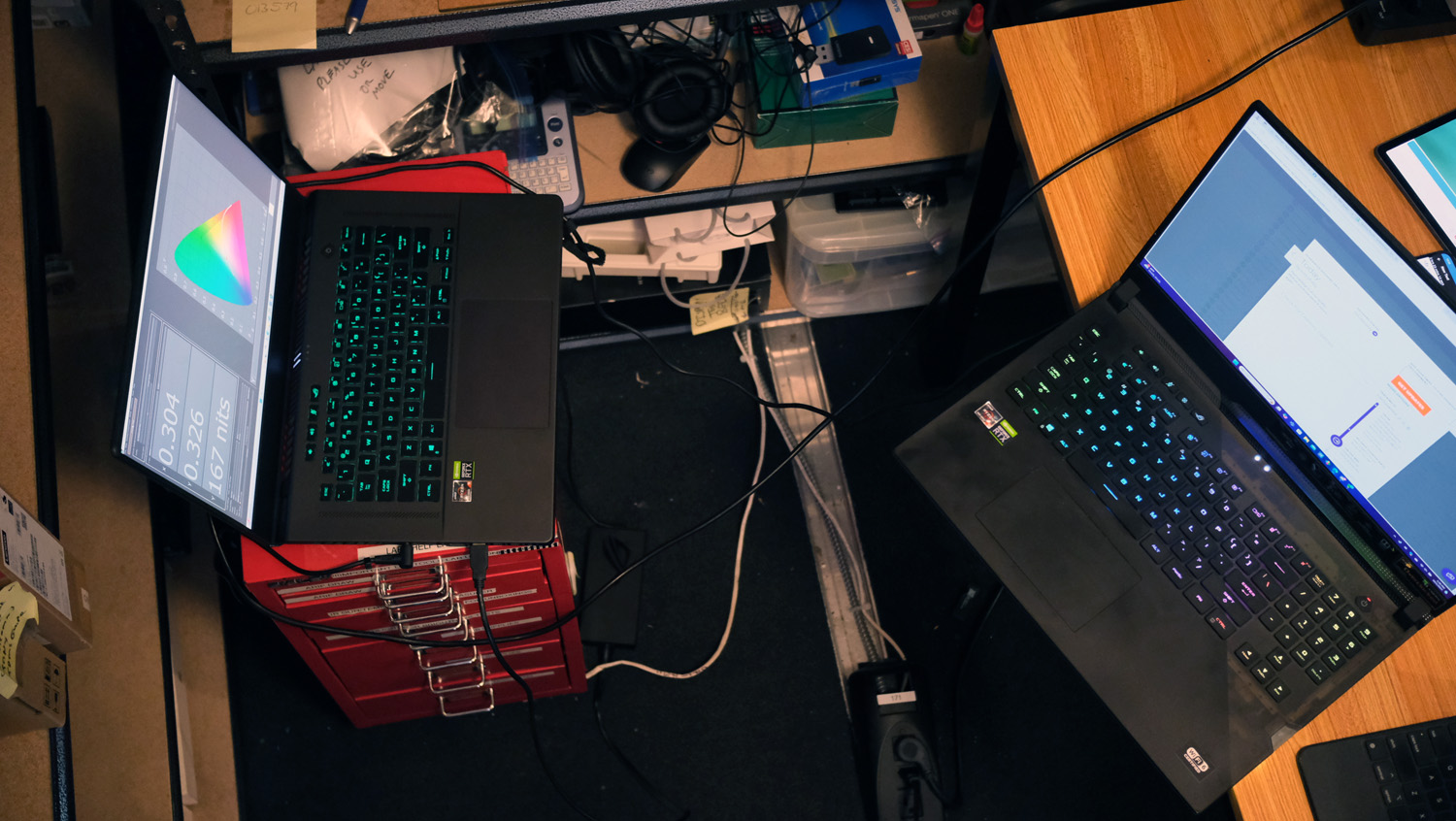
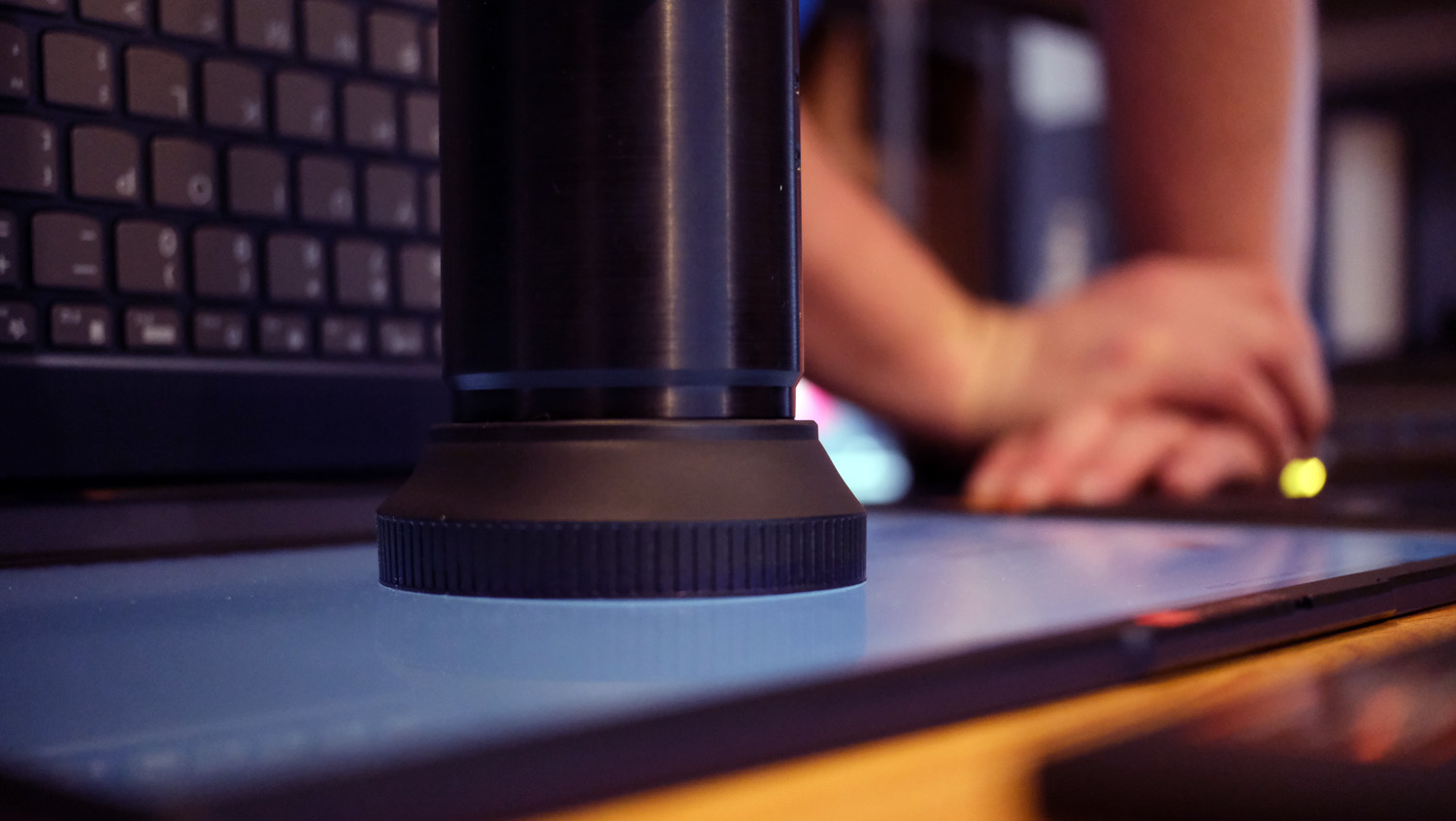
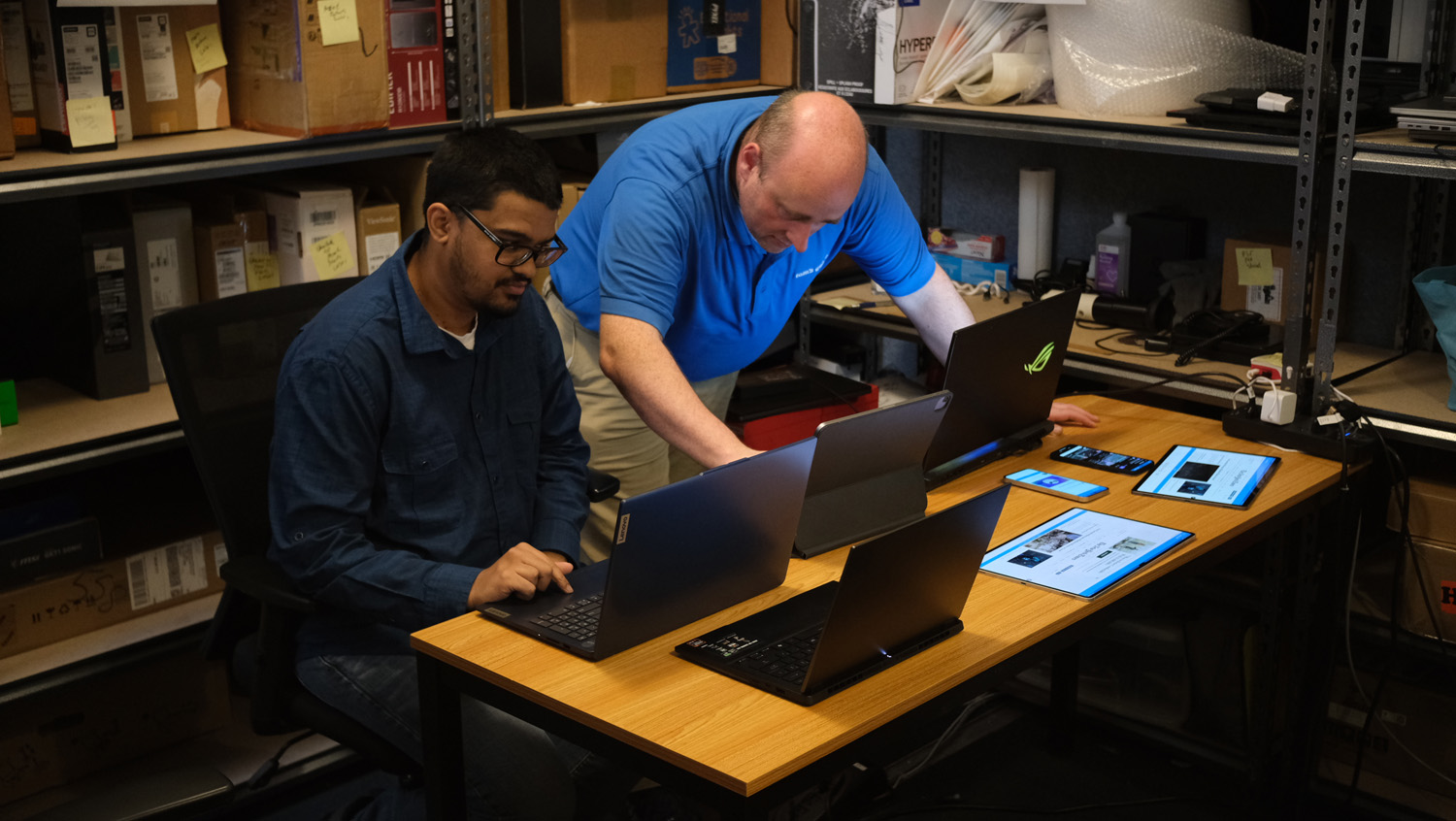
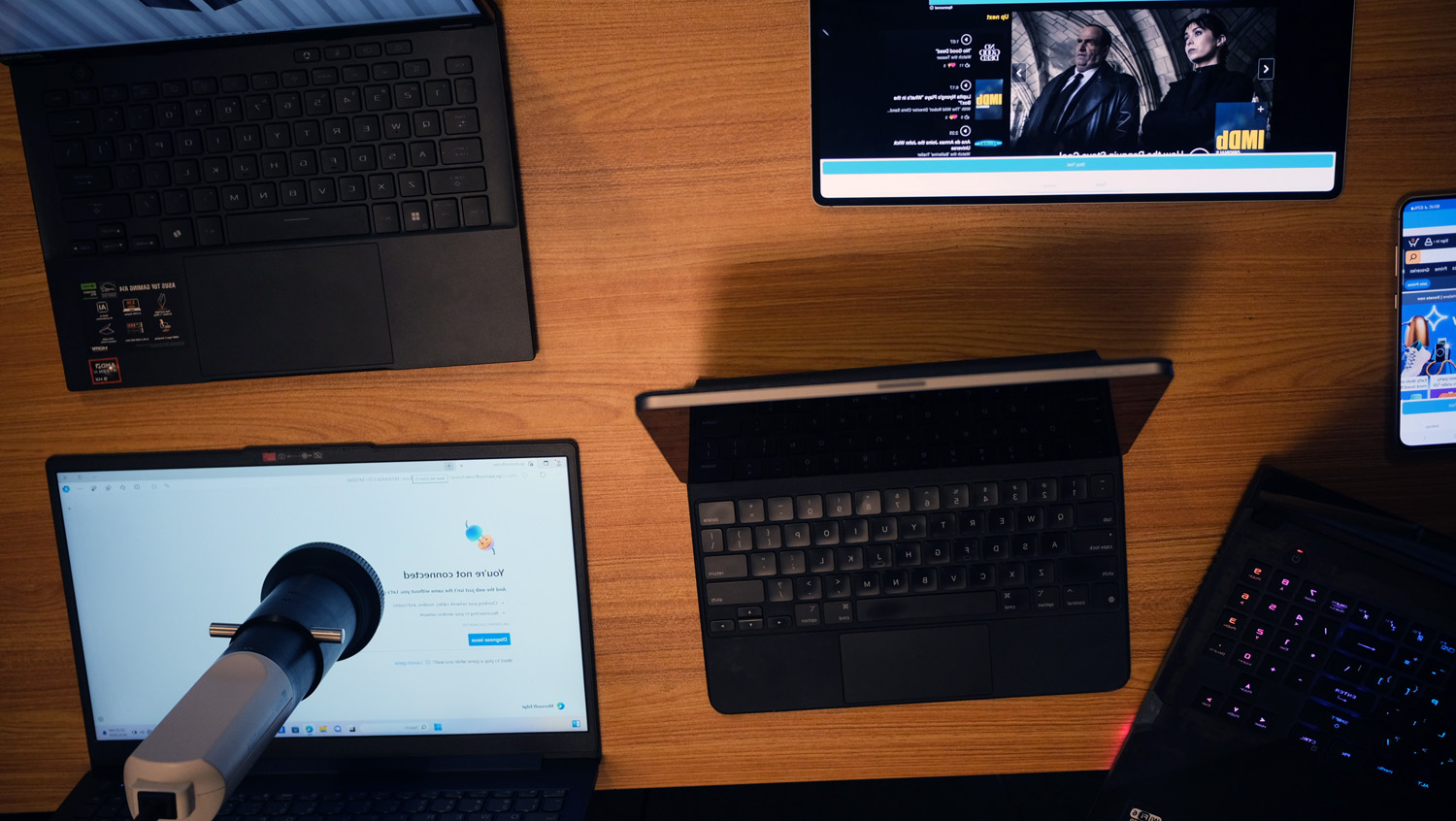
Over a year, we review over 100 laptops, covering every price point and use case. Whether you’re looking for a productivity workhorse, a badass gaming system, or a multimedia machine to kick back and watch a movie or two, we can help you find your ideal match.
To make our best laptops of 2025v list, the system needs to score at least 4 out of 5 stars on our reviews and deliver on the things shoppers care about most. Our evaluations focus on design and comfort, display quality, keyboard and touchpad, performance, battery life, and value.
Our expert reviewers also test each product to see how it looks, feels, and performs in everyday situations. Because we see so many different notebooks, we can compare each to its direct competitors and give you an idea of how it compares to the average laptop in its price band.
When we bring a laptop into our laboratory, we aim to see how it would work if you brought it into your home or office. While we use industry-standard benchmarks such as Geekbench and 3DMark, we focus heavily on real-world tests that we have developed in-house.
To test endurance, the Laptop Mag Battery test surfs the web at 150 nits of brightness until the system runs out of juice. We use a giant spreadsheet macro that matches 65,000 names with their addresses to judge pure processing power, the Handbrake video transcoder converts a 4K video to 1080p, and the Geekbench 6 synthetic test. We measure graphics prowess with both 3DMark Ice Storm / Fire Strike and a series of games, including Assassin's Creed: Mirage, Shadow of the Tomb Raider, and Red Dead Redemption 2, just to name a few.
We use a colorimeter to measure screen brightness and color gamut, while other instruments help us determine a laptop's key travel and ambient heat. For more details on our benchmarking procedures, see this page on how we test laptops.
Why trust Laptop Mag
Laptop Mag reviews over a hundred laptops annually, from paperweight ultralights to everyday workhorses to lumbering gaming notebooks that scorch the frame rates of even the hottest AAA games. We're not just experts in the laptop field; we go one step further by meticulously testing smartphones, tablets, headphones, PC accessories, software, and even the latest gaming technology.
We are 100% independent and have decades of experience to help you buy with confidence. Laptop Mag has been testing and reviewing products for three decades and continues to deliver trustworthy reviews you can rely on.
Our experienced team of writers and editors scour all information about the laptop and put it through its paces to determine which is best for you. But before they start, the testing team subjects each system to a rigorous regimen of synthetic and real-world tests to see how a system handles the type of work and games you’re most likely to throw at it.
Future Publishing, one of the world's largest technology publishers, enforces our editorial trustworthiness. As a company, we have unrivaled experience across every tech sector — and we're the group's specialist for all things mobile tech.
Sign up to receive The Snapshot, a free special dispatch from Laptop Mag, in your inbox.
Sean Riley has been covering tech professionally for over a decade now. Most of that time was as a freelancer covering varied topics including phones, wearables, tablets, smart home devices, laptops, AR, VR, mobile payments, fintech, and more. Sean is the resident mobile expert at Laptop Mag, specializing in phones and wearables, you'll find plenty of news, reviews, how-to, and opinion pieces on these subjects from him here. But Laptop Mag has also proven a perfect fit for that broad range of interests with reviews and news on the latest laptops, VR games, and computer accessories along with coverage on everything from NFTs to cybersecurity and more.
